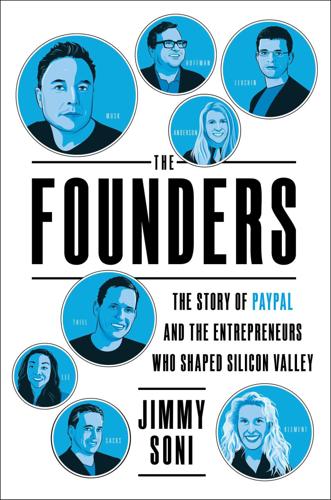
The Founders: The Story of Paypal and the Entrepreneurs Who Shaped Silicon Valley
by
Jimmy Soni
Published 22 Feb 2022
Building Blocks “Peace and Plenty”… “one in 10,000 years”: “Peace and Plenty in Pripyat,” Soviet Life, February 1986 (Washington, DC: Embassy of the Soviet Union in the US, 1986), 8–13. “This notion of you can tell a machine”: “Working Hard & Staying Humble,” Sarah Lacy interview with Max Levchin, Startups.com, December 9, 2018, https://www.startups.com/library/expert-advice/max-levchin. “If I type it out”: Author interview with Max Levchin, June 29, 2018. “My standard self-definition as a programmer had”: “Working Hard & Staying Humble,” Sarah Lacy interview with Max Levchin, Startups.com, December 9, 2018, https://www.startups.com/library/expert-advice/max-levchin. She advanced: F. Lukatskaya, “Autocorrelative Analysis of the Brightness of Irregular and Semi-Regular Variable Stars.”
…
“Wow, if I ever do anything in the financial world”… is a nerd: NerdTV episode 2, Robert Cringley interview with Max Levchin, September 13, 2005, https://archive.org/details/ntv002. “[Thiel] needed to be bailed out”: Author interview with Max Levchin, June 29, 2018. “Somebody ought to scrape”: Author interviews with Max Levchin ( June 29, 2018) and Peter Thiel ( November 28, 2017). “I basically emulated”: Jessica Livingston, “Max Levchin,” Founders at Work (New York: Apress, 2018), 2. “There is some art involved in how”: Ibid., 3. “I’ve seen these devices”… “measure exactly 45 minutes”: Author interviews with Max Levchin and Peter Thiel, 2017, 2018, and 2021. “Peter wasn’t technical”: Author interview with Luke Nosek, May 31, 2018.
…
“I thought security”… “with this group”: Author interview with Luke Nosek, June 25, 2018. What exactly would Nosek: Author interviews with Luke Nosek (June 25, 2018) and Max Levchin (June 29, 2018). “Luke”… “was one of those”: Author interview with Max Levchin, June 29, 2018. “That’s when I learned”: Author interview with Luke Nosek, May 31, 2018. “Everybody I told”: Author interview with Max Levchin, June 29, 2018. “Can I just”… “working on this”: Author interview with Max Levchin, June 29, 2018. “We realized that”: Jessica Livingston, “Max Levchin,” Founders at Work (New York: Apress, 2018), 3. The team closed a $500,000: Investment documents shared with author.
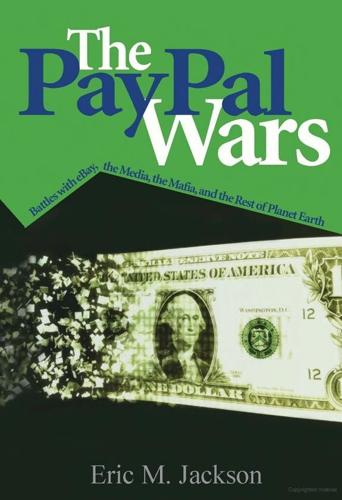
The Paypal Wars: Battles With Ebay, the Media, the Mafia, and the Rest of Planet Earth
by
Eric M. Jackson
Published 15 Jan 2004
I also appreciate Ron Kenner’s editing assistance and Sharon Goldlinger’s astute guidance. Brandi Laughey, Jonathan New, Nancy Humphreys, and Steven Phenix have been wonderful to work with. And I’ve never met a more thorough or trustworthy adviser than Hank Terry. I would also like to thank my PayPal compatriots, including Peter Thiel, Max Levchin, David Sacks, and Paul Martin, for providing me with their time and feedback; while the conclusions reached in this book are ultimately my own, I nonetheless appreciate their support and enthusiasm. Friends and family played no small role in this endeavor, and my wife, Beatrice, played a role above and beyond all others; without her steadfast devotion and countless hours laboring alongside me, this project would not have been possible.
…
A libertarian wary of concentrated government power, Peter’s philosophical underpinnings were influenced by accounts of totalitarian oppression such as the works of Aleksandr Solzhenitsyn. Peter had recently moved back to the San Francisco Bay Area to set up his own hedge fund, and the lecture opportunity enabled him to discuss an issue he knew well. The animated speech Peter delivered inspired a twenty-four year old programmer in the audience to introduce himself afterward. Max Levchin had good reason to show interest in Peter’s remarks. Growing up as a Jew in the Soviet Union, he and his family faced limits on opportunities for education, housing, and employment because of their religion. When they emigrated from Kiev to Chicago in 1991 they made the most of their newfound freedom by buying Max a used computer.
…
Board games, especially “Risk,” littered the floors. Engineers collected old Domino’s pizza boxes on their desks. Employees wore shorts and T-shirts to work, convenient attire when the occasional water gun fight broke out in the hallways. A ratty couch with sagging cushions sat next to the entrance of Max Levchin’s office, which he shared with two other coders. Could anything but chaos come out of such a setting? I had plenty of time during the afternoon to mull over that question as I sat largely ignored behind my mammoth desk. Might the youth of Confinity’s employees be the source of the company’s erratic behavior?
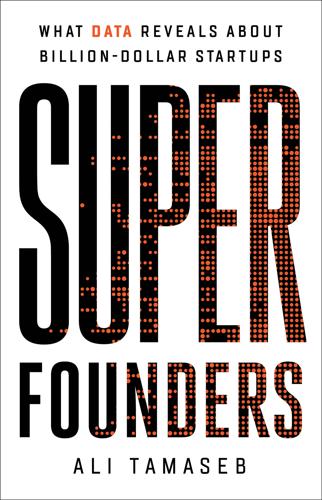
Super Founders: What Data Reveals About Billion-Dollar Startups
by
Ali Tamaseb
Published 14 Sep 2021
Entrepreneurs need to figure out whether corporations or consumers are looking for their product more strongly and know that pursuing both consumer and enterprise sales channels at the same time, at least when starting out, has rarely led to successful outcomes. A FOUNDER WHO DID BOTH MARKET CREATION AND EXPANSION INTERVIEW WITH MAX LEVCHIN OF PAYPAL AND AFFIRM Max Levchin has co-founded two billion-dollar startups: PayPal and Affirm. PayPal, launched in 1999, created the market for peer-to-peer online payments. The company gained mass adoption on eBay by enabling safe online payments from buyer to seller. This boosted eBay’s revenues and opened up the market for online commerce and payments.
…
A Billion-Dollar Move Out of Silicon Valley into Denver: INTERVIEW WITH RACHEL CARLSON OF GUILD EDUCATION 8 Product A Founder Who Always Built Highly Differentiated Products: INTERVIEW WITH TONY FADELL OF NEST AND APPLE 9 Market A Founder Who Did Both Market Creation and Expansion: INTERVIEW WITH MAX LEVCHIN OF PAYPAL AND AFFIRM 10 Market Timing A Billion-Dollar Startup with Perfect Market Timing: INTERVIEW WITH MARIO SCHLOSSER OF OSCAR HEALTH 11 Competition Competing Against Strong Incumbents: INTERVIEW WITH ERIC YUAN OF ZOOM 12 The Defensibility Factor PART THREE: THE FUNDRAISING 13 Venture Capital Versus Bootstrapping A $7.5 Billion Company That Was Bootstrapped for the First Five Years: INTERVIEW WITH TOM PRESTON-WERNER OF GITHUB 14 Bull Market Versus Bear Market A Billion-Dollar Company That Started in the Depth of the Recession: INTERVIEW WITH MICHELLE ZATLYN OF CLOUDFLARE 15 Capital Efficiency 16 Angels and Accelerators A Prolific Angel Investor Turned VC: INTERVIEW WITH KEITH RABOIS OF FOUNDERS FUND 17 VC Investors An Investor in Airbnb, DoorDash, Houzz, Zipline, and More: INTERVIEW WITH ALFRED LIN OF SEQUOIA CAPITAL 18 Fundraising An Investor in Facebook, SpaceX, Stripe, and More: INTERVIEW WITH PETER THIEL What to Remember Acknowledgments Discover More About the Author Praise for Super Founders Notes Explore book giveaways, sneak peeks, deals, and more.
…
In addition to the data, the interviews are a chance to hear the more nuanced stories directly from a few of these founders. In some cases they are a representative sample of the data, and in other cases they are outliers. The outliers are important too—they demonstrate that sometimes you can succeed even in the face of data that shows otherwise. We will hear from Max Levchin, co-founder of PayPal and Affirm, on market creation versus expansion; from Tony Fadell, founder of Nest and the inventor of the iPod, on product differentiation; from Michelle Zatlyn, co-founder of Cloudflare, on starting a company during the recession; and from Eric Yuan, founder of Zoom, on competition.
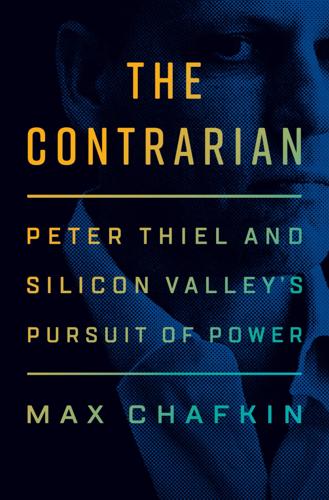
The Contrarian: Peter Thiel and Silicon Valley's Pursuit of Power
by
Max Chafkin
Published 14 Sep 2021
Levchin later recalled: Sarah Lacy, “I Almost Lost My Leg to a Crazy Guy with a Geiger Counter,” PandoDaily, August 17, 2017, https://pando.com/2017/08/17/i-almost-lost-my-leg-crazy-guy-geiger-counter-max-levchin-and-other-valley-icons-share-their-stories-luck/. “How about tomorrow?”: Max Levchin, interviewed by Jason Calacanis, This Week in Startups, 4‒6, https://www.youtube.com/watch?v=e48aSjtg1ds. “One day,” he told Thiel: Max Levchin, “A Fireside Chat with Max Levchin,” PandoDaily, July 17, 2004, 50:00‒54:00, https://www.youtube.com/watch?v=wYSFoml6CtY. boasted to a reporter: Steve Bodow, “The Money Shot,” Wired, September 1, 2001, https://www.wired.com/2001/09/paypal/.
…
Thiel would not be an idealistic techie—not the Time magazine version of a Silicon Valley entrepreneur with torn jeans who just wanted to make cool stuff—but the investor behind those guys. And so, on a sweltering summer day in 1998, he found himself in a classroom at Stanford’s Frederick E. Terman Engineering Center attempting to chat up an awkward but brilliant coder. Max Levchin was twenty-three years old and fresh out of the University of Illinois, where he’d graduated with a degree in computer science just a few years behind Andreessen. He was, in some ways, much more impressive than the Netscape founder. Levchin had been born in Ukraine to a Jewish family during the last years of Soviet power.
…
Thiel was nominally straight, and sometimes was seen with women, including one particular attractive young woman that most of the world assumed was Thiel’s girlfriend. Kester figured Andrew McCormack had picked her out, too. Most of his friends, though, knew that he simply preferred to steer clear of the subject of sex altogether. In 2006, Max Levchin would confess that he couldn’t recall Thiel ever mentioning his personal life. Once—once!—Thiel asked about Levchin’s girlfriend. “I was shocked,” Levchin said. * * * — another casualty of the dot-com era was print journalism, as two of the survivors of the tech boom—Craigslist and Google—were beginning to capture advertising revenue that the media moguls in the 1990s had thought would last forever.
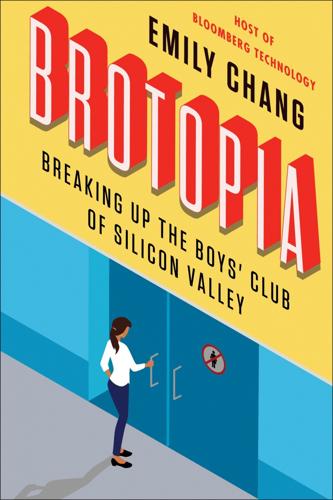
Brotopia: Breaking Up the Boys' Club of Silicon Valley
by
Emily Chang
Published 6 Feb 2018
“I do believe in diversity”: David Sacks, “Zenefits CEO on Closing the Chapter on Compliance Issues,” interview by author, Bloomberg, Oct. 18, 2016, video, 12:23, https://www.bloomberg.com/news/videos/2016-10-18/zenefits-ceo-on-closing-the-chapter-on-compliance-issues. “sleep and get some air-conditioning”: Max Levchin, “PayPal Co-Founder Max Levchin: Studio 1.0 (02/05),” interview by author, Bloomberg, Feb. 6, 2015, video, 27:34, https://www.bloomberg.com/news/videos/2015-02-06/paypal-co-founder-max-levchin-studio-1-0-02-05-. “they must work quickly”: Thiel, Zero to One, 122–23. Except for the office manager, who was female: Jodi Kantor, “A Brand New World in Which Men Ruled,” New York Times, Dec. 23, 2014, https://www.nytimes.com/interactive/2014/12/23/us/gender-gaps-stanford-94.html.
…
He left Square in the midst of sexual harassment allegations involving a male employee (which he denied) and became a general partner at Khosla Ventures. Between his stints at LinkedIn and Square, Rabois also became executive vice president of the social app company Slide, started by Max Levchin and backed by Thiel’s Founders Fund. It was at Slide that Levchin learned the hard way that having a male-dominated team like PayPal’s wasn’t always a recipe for success. MAX LEVCHIN’S DIVERSITY AWAKENING Tres, a Mexican bar and restaurant, is located on Townsend Street, in San Francisco’s tech-heavy SoMa district, and the staff of Slide assembled there regularly for happy hour.
…
At the time, Thiel was just another conservative up-and-comer, a minor player in the traditional power structures of politics in Washington and finance in New York. That was about to change. PAYPAL: WHEN “MERITOCRACY” MEANS “PEOPLE LIKE US” One day in 1998, Thiel was guest lecturing about currency trading at Stanford when a young Ukrainian engineer named Max Levchin sneaked in to, as he told me, “sleep and get some air-conditioning.” Instead, he wound up listening. At the end of class, Levchin introduced himself to Thiel and mentioned that he wanted to start a company. He had already started four that had failed, but he wasn’t about to give up. The next day, the two men had breakfast and hatched the idea for PayPal over a Hobee’s “Red, White, and Blue” smoothie.
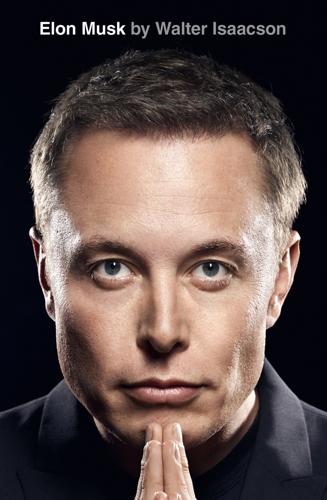
Elon Musk
by
Walter Isaacson
Published 11 Sep 2023
One driver of growth was a feature that they originally thought was no big deal: the ability to send money by email. That became wildly popular, especially on the auction site eBay, where users were looking for an easy way to pay strangers for purchases. Max Levchin and Peter Thiel As Musk monitored the names of new customers signing up, one caught his eye: Peter Thiel. He was one of the founders of a company named Confinity that had been located in the same building as X.com and was now just down the street. Both Thiel and his primary cofounder Max Levchin were as intense as Musk, but they were more disciplined. Like X.com, their company offered a person-to-person payment service. Confinity’s version was called PayPal.
…
I think a huge part of the way he motivates people are these displays of sharpness, which people just don’t expect from him, because they mistake him for a bullshitter or goofball.” 13 The Coup PayPal, September 2000 The PayPal mafia Luke Nosek, Ken Howery, David Sacks, Peter Thiel, Keith Rope, Reid Hoffman, Max Levchin, Roelof Botha; Max Levchin Michael Moritz Street fight By late summer of 2000, Levchin found Musk increasingly difficult to deal with. He wrote Musk long memos outlining how fraud was threatening to bankrupt the company (one of them incongruously titled “Fraud Is Love”), but all he got in response were terse dismissals.
…
Justine Musk, “I Was a Starter Wife,” Marie Claire, Sept. 10, 2010. 12. X.com: Author’s interviews with Elon Musk, Mike Moritz, Peter Thiel, Roelof Botha, Max Levchin, Reid Hoffman, Luke Nosek. Mark Gimein, “Elon Musk Is Poised to Become Silicon Valley’s Next Big Thing,” Salon, Aug. 17, 1999; Sarah Lacy, “Interview with Elon Musk,” Pando, Apr. 15, 2009; Eric Jackson, The PayPal Wars (World Ahead, 2003); Chafkin, The Contrarian. 13. The Coup: Author’s interviews with Elon Musk, Mike Moritz, Peter Thiel, Roelof Botha, Max Levchin, Reid Hoffman, Justine Musk, Kimbal Musk, Luke Nosek. Soni, The Founders; Vance, Elon Musk; Chafkin, The Contrarian. 14.
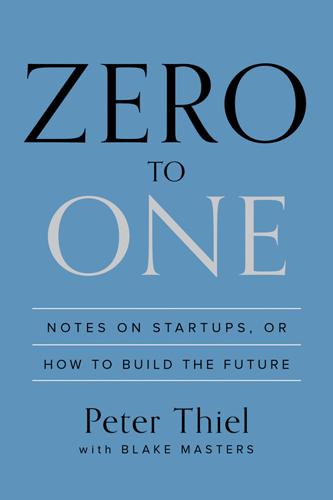
Zero to One: Notes on Startups, or How to Build the Future
by
Peter Thiel
and
Blake Masters
Published 15 Sep 2014
But perhaps White spent a little too much time worrying about the competition: while he was busy creating billboards, Informix imploded in a massive accounting scandal and White soon found himself in federal prison for securities fraud. If you can’t beat a rival, it may be better to merge. I started Confinity with my co-founder Max Levchin in 1998. When we released the PayPal product in late 1999, Elon Musk’s X.com was right on our heels: our companies’ offices were four blocks apart on University Avenue in Palo Alto, and X’s product mirrored ours feature-for-feature. By late 1999, we were in all-out war. Many of us at PayPal logged 100-hour workweeks.
…
What makes a startup employee instantly distinguishable to outsiders is the branded T-shirt or hoodie that makes him look the same as his co-workers. The startup uniform encapsulates a simple but essential principle: everyone at your company should be different in the same way—a tribe of like-minded people fiercely devoted to the company’s mission. Max Levchin, my co-founder at PayPal, says that startups should make their early staff as personally similar as possible. Startups have limited resources and small teams. They must work quickly and efficiently in order to survive, and that’s easier to do when everyone shares an understanding of the world. The early PayPal team worked well together because we were all the same kind of nerd.
…
In mid-2000, we had survived the dot-com crash and we were growing fast, but we faced one huge problem: we were losing upwards of $10 million to credit card fraud every month. Since we were processing hundreds or even thousands of transactions per minute, we couldn’t possibly review each one—no human quality control team could work that fast. So we did what any group of engineers would do: we tried to automate a solution. First, Max Levchin assembled an elite team of mathematicians to study the fraudulent transfers in detail. Then we took what we learned and wrote software to automatically identify and cancel bogus transactions in real time. But it quickly became clear that this approach wouldn’t work either: after an hour or two, the thieves would catch on and change their tactics.
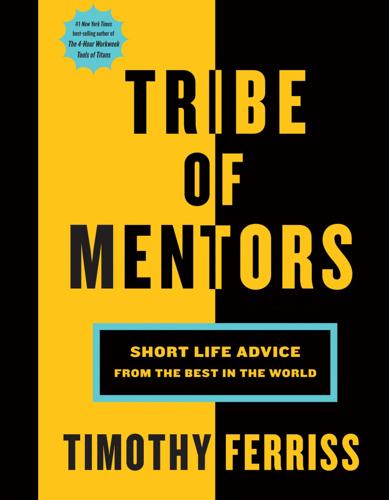
Tribe of Mentors: Short Life Advice From the Best in the World
by
Timothy Ferriss
Published 14 Jun 2017
–William of Ockham English philosopher and originator of Occam’s Razor “Learning to ignore things is one of the great paths to inner peace.” –Robert J. Sawyer Hugo and Nebula Award–winning science fiction writer “Whenever there is any doubt, there is no doubt.”—David Mamet, Ronin Max Levchin TW: @mlevchin affirm.com MAX LEVCHIN is the co-founder and CEO of Affirm, which uses modern technology to reimagine and rebuild core components of financial infrastructure from the ground up. Previously, Max co-founded and was first chief technology officer of PayPal (acquired by eBay for $1.5 billion). He then helped start Yelp as its first investor and served as chairman for 11 years.
…
Contents * * * Title Page Contents Copyright Disclaimers Dedication and Epigraph Introduction Samin Nosrat Steven Pressfield Susan Cain Kyle Maynard Quotes I’m Pondering (Tim Ferriss: Sept. 18–Oct. 2, 2015) Terry Crews Debbie Millman Naval Ravikant Matt Ridley Bozoma Saint John Quotes I’m Pondering (Tim Ferriss: Oct. 9–Oct. 30, 2015) Tim Urban Janna Levin Ayaan Hirsi Ali Graham Duncan Mike Maples Jr. Quotes I’m Pondering (Tim Ferriss: Nov. 6–Dec. 4, 2015) Soman Chainani Dita Von Teese Jesse Williams Dustin Moskovitz Richa Chadha Quotes I’m Pondering (Tim Ferriss: Dec. 11, 2015–Jan. 1, 2016) Max Levchin Neil Strauss Veronica Belmont Patton Oswalt Lewis Cantley Quotes I’m Pondering (Tim Ferriss: Jan. 8–Jan. 29, 2016) Jerzy Gregorek Aniela Gregorek Amelia Boone Sir Joel Edward McHale, Lord of Winterfell Ben Stiller Quotes I’m Pondering (Tim Ferriss: March 11–March 25, 2016) Anna Holmes Andrew Ross Sorkin Joseph Gordon-Levitt How to Say No: Wendy MacNaughton Vitalik Buterin Quotes I’m Pondering (Tim Ferriss: Feb. 12–March 4, 2016) Rabbi Lord Jonathan Sacks Julia Galef Turia Pitt Annie Duke Jimmy Fallon Quotes I’m Pondering (Tim Ferriss: April 1–April 15, 2016) Esther Perel Maria Sharapova Adam Robinson Josh Waitzkin Ann Miura-Ko Jason Fried Quotes I’m Pondering (Tim Ferriss: April 22–May 13, 2016) Arianna Huffington Gary Vaynerchuk Tim O’Reilly Tom Peters Bear Grylls Brené Brown Quotes I’m Pondering (Tim Ferriss: May 27–June 16, 2016) Leo Babauta Mike D Esther Dyson Kevin Kelly Ashton Kutcher Quotes I’m Pondering (Tim Ferriss: June 24–July 15, 2016) Brandon Stanton Jérôme Jarre Fedor Holz Eric Ripert Sharon Salzberg Quotes I’m Pondering (Tim Ferriss: July 22–Aug. 12, 2016) Franklin Leonard Peter Guber Greg Norman Daniel Ek Strauss Zelnick Quotes I’m Pondering (Tim Ferriss: Aug. 12–Sept. 9, 2016) Steve Jurvetson Tony Hawk Liv Boeree Anníe Mist þórisdóttir Quotes I’m Pondering (Tim Ferriss: Sept. 16–Oct. 14, 2016) Mark Bell Ed Coan Ray Dalio Jacqueline Novogratz Brian Koppelman Stewart Brand Quotes I’m Pondering (Tim Ferriss: Oct. 21–Nov. 18, 2016) Sarah Elizabeth Lewis Gabor Maté Steve Case Linda Rottenberg Tommy Vietor Quotes I’m Pondering (Tim Ferriss: Nov. 25–Dec. 30, 2016) Larry King Muna AbuSulayman Sam Harris Maurice Ashley How to Say No: Danny Meyer John Arnold Quotes I’m Pondering (Tim Ferriss: Jan. 6–Jan. 27, 2017) Mr.
…
Steven Pressfield, 6; Kyle Maynard, 15; Terry Crews, 20; Debbie Millman, 25; Naval Ravikant, 32; Matt Ridley, 36; Bozoma Saint John, 37; Tim Urban, 41; Ayaan Hirsi Ali, 54; Graham Duncan, 57; Mike Maples Jr., 65; Soman Chainani, 71; Dita Von Teese, 76; Jesse Williams, 80; Dustin Moskovitz, 83; Richa Chadha, 86; Max Levchin, 92; Neil Strauss, 96; Veronica Belmont, 101; Patton Oswalt, 105; Lewis Cantley, 108; Jerzy Gregorek, 114; Aniela Gregorek, 122; Amelia Boone, 129; Joel McHale, 132; Ben Stiller, 136; Anna Holmes, 142; Joseph Gordon-Levitt, 148; Rabbi Lord Jonathan Sacks, 158; Turia Pitt, 168; Jimmy Fallon, 176; Maria Sharapova, 183; Adam Robinson, 186; Josh Waitzkin, 196; Jason Fried, 203; Arianna Huffington, 212; Tim O’Reilly, 220; Tom Peters, 226; Bear Grylls, 230; Brené Brown, 232; Esther Dyson, 244; Kevin Kelly, 247; Ashton Kutcher, 251; Jérôme Jarre, 257; Fedor Holz, 265; Eric Ripert, 269; Sharon Salzberg, 273; Greg Norman, 284; Daniel Ek, 287; Strauss Zelnick, 289; Steve Jurvetson, 293; Liv Boeree, 301; Anníe Mist Þórisdóttir, 306; Mark Bell, 310; Ray Dalio, 322; Jacqueline Novogratz, 325; Brian Koppelman, 329; Stewart Brand, 333; Sarah Elizabeth Lewis, 337; Gabor Maté, 341; Steve Case, 346; Tommy Vietor, 354; Larry King, 361; Muna AbuSulayman, 363; Sam Harris, 366; Maurice Ashley, 369; John Arnold, 374; David Lynch, 380; Nick Szabo, 383; Jon Call, 386; Dan Gable, 393; Caroline Paul, 396; Darren Aronofsky, 399; Chris Anderson, 408; Michael Gervais, 412; Kelly Slater, 419; Katrín Tanja Davíðsdóttir, 421; Adam Fisher, 428; Laura Walker, 438; Terry Laughlin, 441; Marc Benioff, 446; Marie Forleo, 451; Drew Houston, 456; Tim McGraw, 465; Craig Newmark, 473; Steven Pinker, 477; Gretchen Rubin, 480; Whitney Cummings, 482; Rick Rubin, 487; Ryan Shea, 492; Ben Silbermann, 497; Vlad Zamfir, 501; Zooko Wilcox, 506; Stephanie McMahon, 511; Peter Attia, 515; Steve Aoki, 522; Jim Loehr, 527; Daniel Negreanu, 533; Jocko Willink, 537; Kristen Ulmer, 549; Yuval Noah Harari, 555 What purchase of $100 or less has most positively impacted your life in the last six months (or in recent memory)?
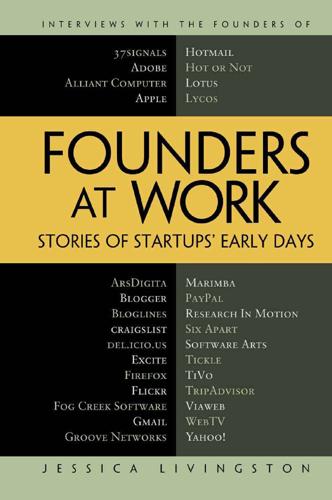
Founders at Work: Stories of Startups' Early Days
by
Jessica Livingston
Published 14 Aug 2008
Perhaps if people can see how these companies actually started, it will be less daunting for them to envision starting something of their own. I hope a lot of the people who read these stories will think, “Hey, these guys were once just like me. Maybe I could do it too.” C H A P T 1 E R Max Levchin Cofounder, PayPal PayPal was founded in December 1998 by recent college grad Max Levchin and hedge fund manager Peter Thiel. The company went through several ideas, including cryptography software and a service for transmitting money via PDAs, before finding its niche as a web-based payment system. That service became wildly popular for online vendors, especially eBay sellers, who preferred it to traditional payment methods.
…
For Da and PG Contents FOREWORD . . . . . . . . . . . . . . . . . . . . . . . . . . . . . . . . . . . . . ix PREFACE . . . . . . . . . . . . . . . . . . . . . . . . . . . . . . . . . . . . . . . . xi ABOUT THE AUTHOR . . . . . . . . . . . . . . . . . . . . . . . . . . . . . . . xiii ACKNOWLEDGMENTS . . . . . . . . . . . . . . . . . . . . . . . . . . . . . . . xv INTRODUCTION . . . . . . . . . . . . . . . . . . . . . . . . . . . . . . . . . . xvii CHAPTER 1 MAX LEVCHIN PayPal . . . . . . . . . . . . . . . . . . . . . . . . . . . . . . . . . 1 CHAPTER 2 SABEER BHATIA Hotmail. . . . . . . . . . . . . . . . . . . . . . . . . . . . . . . . 17 CHAPTER 3 STEVE WOZNIAK Apple Computer . . . . . . . . . . . . . . . . . . . . . . . . . . 31 CHAPTER 4 JOE KRAUS Excite . . . . . . . . . . . . . . . . . . . . . . . . . . . . . . . . . 61 CHAPTER 5 DAN BRICKLIN Software Arts . . . . . . . . . . . . . . . . . . . . . . . . . . . . 73 CHAPTER 6 MITCHELL KAPOR Lotus Development. . . . . . . . . . . . . . . . . . . . . . . . . 89 CHAPTER 7 RAY OZZIE Iris Associates, Groove Networks . . . . . . . . . . . . . . . . 103 CHAPTER 8 EVAN WILLIAMS Pyra Labs (Blogger.com) . . . . . . . . . . . . . . . . . . . . . 111 CHAPTER 9 TIM BRADY Yahoo. . . . . . . . . . . . . . . . . . . . . . . . . . . . . . . . 127 CHAPTER 10 MIKE LAZARIDIS Research In Motion . . . . . . . . . . . . . . . . . . . . . . . . 141 v vi Contents CHAPTER 11 ARTHUR VAN HOFF Marimba . . . . . . . . . . . . . . . . . . . . . . . . . . . . . . 153 CHAPTER 12 PAUL BUCHHEIT Gmail . . . . . . . . . . . . . . . . . . . . . . . . . . . . . . . . 161 CHAPTER 13 STEVE PERLMAN WebTV . . . . . . . . . . . . . . . . . . . . . . . . . . . . . . . 173 CHAPTER 14 MIKE RAMSAY TiVo. . . . . . . . . . . . . . . . . . . . . . . . . . . . . . . . . 191 CHAPTER 15 PAUL GRAHAM Viaweb . . . . . . . . . . . . . . . . . . . . . . . . . . . . . . . 205 CHAPTER 16 JOSHUA SCHACHTER del.icio.us . . . . . . . . . . . . . . . . . . . . . . . . . . . . . . 223 CHAPTER 17 MARK FLETCHER ONElist, Bloglines . . . . . . . . . . . . . . . . . . . . . . . . . 233 CHAPTER 18 CRAIG NEWMARK craigslist . . . . . . . . . . . . . . . . . . . . . . . . . . . . . . . 247 CHAPTER 19 CATERINA FAKE Flickr . . . . . . . . . . . . . . . . . . . . . . . . . . . . . . . . 257 CHAPTER 20 BREWSTER KAHLE WAIS, Internet Archive, Alexa Internet . . . . . . . . . . . . . 265 CHAPTER 21 CHARLES GESCHKE Adobe Systems . . . . . . . . . . . . . . . . . . . . . . . . . . 281 CHAPTER 22 ANN WINBLAD Open Systems, Hummer Winblad . . . . . . . . . . . . . . . . 297 CHAPTER 23 DAVID HEINEMEIER HANSSON 37signals . . . . . . . . . . . . . . . . . . . . . . . . . . . . . . 309 CHAPTER 24 PHILIP GREENSPUN ArsDigita . . . . . . . . . . . . . . . . . . . . . . . . . . . . . . 317 CHAPTER 25 JOEL SPOLSKY Fog Creek Software . . . . . . . . . . . . . . . . . . . . . . . . 345 CHAPTER 26 STEPHEN KAUFER TripAdvisor. . . . . . . . . . . . . . . . . . . . . . . . . . . . . 361 CHAPTER 27 JAMES HONG HOT or NOT . . . . . . . . . . . . . . . . . . . . . . . . . . . 377 CHAPTER 28 JAMES CURRIER Tickle . . . . . . . . . . . . . . . . . . . . . . . . . . . . . . . . 387 CHAPTER 29 BLAKE ROSS Firefox . . . . . . . . . . . . . . . . . . . . . . . . . . . . . . . 395 Contents vii CHAPTER 30 MENA TROTT Six Apart . . . . . . . . . . . . . . . . . . . . . . . . . . . . . . 405 CHAPTER 31 BOB DAVIS Lycos . . . . . . . . . . . . . . . . . . . . . . . . . . . . . . . . 419 CHAPTER 32 RON GRUNER Alliant Computer Systems, Shareholder.com . . . . . . . . . . 427 CHAPTER 33 JESSICA LIVINGSTON Y Combinator . . . . . . . . . . . . . . . . . . . . . . . . . . . 447 INDEX . . . . . . . . . . . . . . . . . . . . . . . . . . . . . . . . . . . . . . . . 455 Foreword Sprinters apparently reach their highest speed right out of the blocks, and spend the rest of the race slowing down.
…
I had a lot of friends on campus who were really into security as well—most of them were sys admins—and they carried a whole bunch of these things in their pockets, because most of the time you can only use one per computer, per system. If you adminned a lab with ten servers, you’d have a stack of these things in your pocket, and that adds up. They are heavy, and they need batteries. I basically emulated the whole thing on a Palm Pilot so my friends were able to throw out their stupid devices and use my thing. Max Levchin 3 I posted it on the Web, which was young and silly then, and I got hundreds and then thousands of downloads, and people were offering me money to get more features in. So I thought, “This seems to be a business.” At the time, I was just keen on getting any sort of business off the ground. So, when I moved to the Valley, I basically pitched Peter on the following concept.
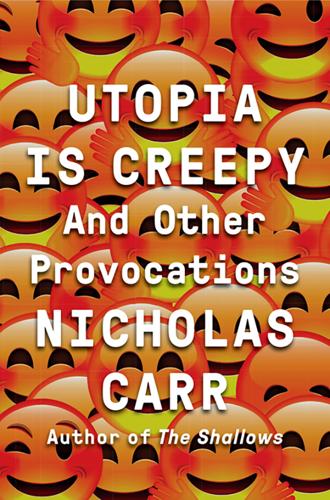
Utopia Is Creepy: And Other Provocations
by
Nicholas Carr
Published 5 Sep 2016
The least we can do for our mind children is to give them the freedom to be tempted. Besides, how is a computer supposed to have an intelligent conversation with the Singularitarians if it can’t use the word “bullshit”? MAX LEVCHIN HAS PLANS FOR US January 30, 2013 “I SOMETIMES IMAGINE THE low-use troughs of sinusoidal curves utilization of all these analog resources being pulled up, filling up with happy digital usage.” That delightful sentence comes from a speech that Max Levchin gave earlier this month in Munich. When he posted a transcript on his website a couple of days ago, he described the talk as “crucially important.” I have to crucially agree.
…
BURN. READ. LIVE FAST, DIE YOUNG, AND LEAVE A BEAUTIFUL HOLOGRAM ONLINE, OFFLINE, AND THE LINE BETWEEN GOOGLE GLASS AND CLAUDE GLASS BURNING DOWN THE SCHOOLHOUSE THE ENNUI OF THE INTELLIGENT MACHINE REFLECTIONS WILL GUTENBERG LAUGH LAST? THE SEARCHERS ETERNAL SUNSHINE OF THE SPOTLESS AI MAX LEVCHIN HAS PLANS FOR US EVGENY’S LITTLE PROBLEM THE SHORTEST CONVERSATION BETWEEN TWO POINTS HOME AWAY FROM HOME CHARCOAL, SHALE, COTTON, TANGERINE, SKY SLUMMING WITH BUDDHA THE QUANTIFIED SELF AT WORK MY COMPUTER, MY DOPPELTWEETER UNDERWEARABLES THE BUS THE MYTH OF THE ENDLESS LADDER THE LOOM OF THE SELF TECHNOLOGY BELOW AND BEYOND OUTSOURCING DAD TAKING MEASUREMENT’S MEASURE SMARTPHONES ARE HOT DESPERATE SCRAPBOOKERS OUT OF CONTROL OUR ALGORITHMS, OURSELVES TWILIGHT OF THE IDYLLS THE ILLUSION OF KNOWLEDGE WIND-FUCKING THE SECONDS ARE JUST PACKED MUSIC IS THE UNIVERSAL LUBRICANT TOWARD A UNIFIED THEORY OF LOVE <3S AND MINDS IN THE KINGDOM OF THE BORED, THE ONE-ARMED BANDIT IS KING THESES IN TWEETFORM THE EUNUCH’S CHILDREN: ESSAYS AND REVIEWS FLAME AND FILAMENT IS GOOGLE MAKING US STUPID?
…
This is the nightmare world of big data, where the moment-by-moment behavior of human beings—analog resources—is tracked by sensors and engineered by central authorities to create optimal statistical outcomes. It’s where puritanism and fascism meet and exchange fist bumps. We might dismiss it as a warped science fiction fantasy if it weren’t also the utopian dream of the Max Levchins of the world. They have lots of money and they smell more: “I believe that in the next decades we will see huge numbers of inherently analog processes captured digitally. Opportunities to build businesses that process this data and improve lives will abound.” It’s the ultimate win-win: You get filthy rich by purifying the tribe.
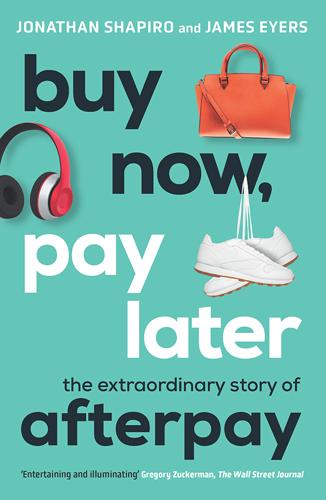
Buy Now, Pay Later: The Extraordinary Story of Afterpay
by
Jonathan Shapiro
and
James Eyers
Published 2 Aug 2021
There was Bill Me Later, a business acquired by PayPal in 2008; ten-year-old Swedish fintech Klarna; and Affirm, which did real-time, fixed-term loans at the checkout. Some of the biggest venture funds were playing in the space. Andreessen Horowitz had just supported a US$275 million debt and equity funding round by Affirm, which had been started by one of PayPal’s co-founders, Max Levchin. Meanwhile Klarna already had 35 million customers and 50,000 merchants, and over the decade since it had been founded in Sweden had accumulated a 10 per cent share of the ecommerce market in Northern Europe, helping retailers sell more than US$9 billion of goods. As the Afterpay deck noted, Klarna had recently raised over US$300 million at a US$1.4 billion valuation, with investors including Sequoia, General Atlantic, Atomic and DST.
…
The checkout offering required retailers to change their payments infrastructure: a hard sell. Klarna was forced to lay off half its US staff at the start of 2017, according to a report in Forbes.7 It then shifted to a model like that of Affirm, which had been founded by one of PayPal’s founders, Max Levchin, in 2012, offering digital versions of traditional finance products that charged interest, with a focus on higher-cost items. But Affirm hadn’t been setting the payments world on fire either. Then Klarna saw the success of Afterpay and it pivoted again, creating an interest-free ‘Pay in 4’ instalment offering in 2018, and a new consumer app.
…
The combination of rising sales and expanding multiples put a proverbial rocket under the share price.14 But supporters would have to stomach another round of volatility, driven by the emergence of new competition in the United States, while consumer groups were again raising their heads above the parapet. Max Levchin, who co-founded PayPal alongside Peter Thiel and Elon Musk, had created Affirm in 2012 out of his incubator, HVF. In early 2014, he decided to make Affirm his full-time job. It had partnered with more than a thousand US retailers by July 2017, the company said. But its product was built on charging customers interest; its pitch centred on better transparency on charges, and the fact that it didn’t charge late fees.
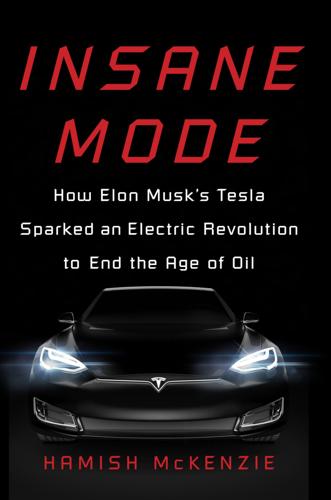
Insane Mode: How Elon Musk's Tesla Sparked an Electric Revolution to End the Age of Oil
by
Hamish McKenzie
Published 30 Sep 2017
Before SpaceX, no private company had ever returned a spacecraft from low earth orbit. Before Tesla, few people believed it would be possible for a high-performance electric car to travel more than two hundred miles on a single charge of its battery. “One of Elon’s greatest skills is the ability to pass off his vision as a mandate from heaven,” Max Levchin, who cofounded PayPal with Musk, said in 2007. “He is very much the person who, when someone says it’s impossible, shrugs and says, ‘I think I can do it.’” Musk spent the first seventeen years of his life in South Africa, growing up in the city of Pretoria. It was obvious from an early age that he was nerdy, reclusive, and determined.
…
The resulting company was PayPal. Musk’s tenure as CEO of the merged entity was short-lived. After ten months in the job, he took a two-week trip to meet prospective investors and have a vacation in Sydney, Australia, with Justine, whom he had married in January 2000. While he was away, Confinity’s founders, Peter Thiel and Max Levchin, staged a coup and convinced the board to remove Musk from the position. Officially, the falling-out centered on a disagreement about which software to use as the technology platform, but personality differences also came into play. Musk could be difficult to work with, Levchin said. “He’s one of those guys who can be larger than the room.”
…
Part of the value of an innovation cluster like Silicon Valley lies in the dispersal of intellectual labor from one node to the next. For instance, PayPal is well known in the Valley for producing a number of high performers who left the company to start, join, or invest in others. The so-called PayPal Mafia includes Reid Hoffman, who founded LinkedIn; Max Levchin, whose most recent of several start-ups is the financial services company Affirm; Peter Thiel, a Facebook board member and President Trump–supporting venture capitalist who cofounded “big data” company Palantir; Jeremy Stoppelman, who started reviews site Yelp; Keith Rabois, who was chief operating officer at Square and then joined Khosla Ventures; David Sacks, who sold Yammer to Microsoft for $1.2 billion and later became CEO at Zenefits; Jawed Karim, who cofounded YouTube; and one Elon Musk.
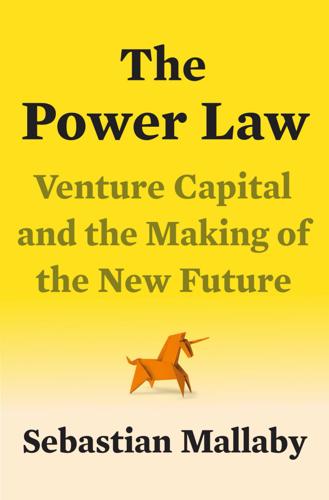
The Power Law: Venture Capital and the Making of the New Future
by
Sebastian Mallaby
Published 1 Feb 2022
“Hey, I’m Max. I’m a friend of Luke Nosek’s.” “Oh, you know Luke. Great.”[14] Thiel remembered the connection. Luke Nosek was a high-octane computer scientist who had arrived in the Valley after studying at the University of Illinois a bit after Marc Andreessen. This Max—his full name was Max Levchin—was a product of the same computer science course. They were all libertarians. Levchin told Thiel he had an idea for a security company. It would be based on his academic work in cryptography. Thiel liked smart people, and Levchin’s project intrigued him. In high school, Thiel had been a math prodigy, coming in first in a California-wide contest; he could appreciate the elegance of cryptographic puzzles.
…
Launched in 2005, Thiel’s new outfit was called Founders Fund. The name signaled the ethos: founders who had created companies like PayPal were out to back the next entrepreneurial cohort, and they promised to treat this new generation with the respect that they themselves had wished for. Luke Nosek, Max Levchin’s old friend and another PayPal alum, was a founding partner; soon, none other than Sean Parker joined them. “Largely because we were all founders ourselves, we’re inherently more interested in helping new entrepreneurs develop into successful leaders than we are in getting rich,” Parker asserted.[35] Naturally, given the fights that Thiel and Parker had been through with Moritz, Founders Fund explicitly ruled out the Qume formula of bringing in an outside CEO.
…
Because only a handful of startups would grow exponentially, there was no point getting excited about opportunities that seemed merely solid; in venture, the median investment was a failure. But when he encountered a potential grand slam, Thiel was ready to pile his chips onto the table. In 1998, his $300,000 bet on Max Levchin had been three times bigger than Andy Bechtolsheim’s bet on Brin and Page, even though at that time Bechtolsheim had more money to play with. In 2004, Thiel’s angel check to Facebook was thirteen times larger than the checks written by Hoffman and Pincus. Other investors, seeking to manage risk through diversification, lacked the stomach for such concentrated wagers.
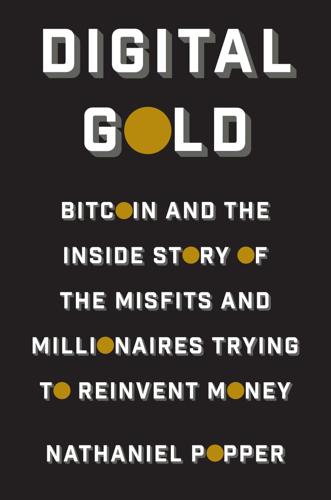
Digital Gold: Bitcoin and the Inside Story of the Misfits and Millionaires Trying to Reinvent Money
by
Nathaniel Popper
Published 18 May 2015
PayPal, of course, still existed, owned by eBay and run by Wences’s friend David Marcus. But what made people wary was not the current incarnation of PayPal, but instead the company’s early days, when it had ambitions to be something much bigger. PayPal had been founded back in 1998 by Peter Thiel and Max Levchin, among others. Thiel was an avid libertarian, who had wanted to use Levchin’s cryptographic expertise to fulfill the Cypherpunks’ dream of sending money through encrypted channels, between private individuals and in particular between mobile devices like the PalmPilots of that time. In early staff meetings, Thiel gave speeches that could almost have come from the Cypherpunk mailing list.
…
It came to seem that the people who wanted Bitcoin to do the least for them were the ones who were managing to do the most for Bitcoin. WENCES CASARES WASN’T looking for Bitcoin to change his life, but he was still imagining that Bitcoin would change the world. His passion for the project had continued to win over important new supporters. Max Levchin, the cofounder of PayPal, and one of the skeptics back at the Allen & Co. conference in Arizona in 2013, had been brought around by Wences at the 2014 version of the conference and was now coming on board as an investor in Xapo. Wences also knew from his friend David Marcus that PayPal was moving toward integrating Bitcoin into all of its online products, making the virtual currency available to a much broader audience.
…
The Winklevoss twins, meanwhile, had made their latest regulatory filing for their Bitcoin exchange-traded fund, which was now set to trade on the Nasdaq Stock Exchange under the ticker symbol COIN. The day before the Allen & Co. conference began, Wences officially announced the $20 million he had raised from Reid Hoffman, Max Levchin, and several other investors, making him the best-funded Bitcoin company in the world, according to publicly released data. At the Allen & Co. conference, Wences was given one of the speaking slots before Jeff Bezos and Warren Buffett took the stage. Wences gave what was becoming a standard talk, beginning with the history of money, and going on to discuss the potential for Bitcoin to provide financial services to poor people who had long been shut out.
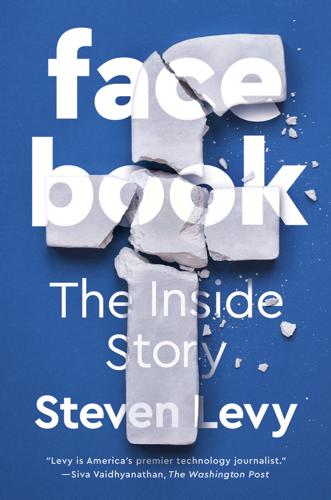
Facebook: The Inside Story
by
Steven Levy
Published 25 Feb 2020
Criticism or not, he wasn’t going to pass on this opportunity. Thiel was head of the Founders Fund, an investment firm he started after leaving the company that made his own fortune, PayPal. (Besides Hoffman, other veterans of that payment company included Tesla founder Elon Musk and entrepreneur Max Levchin. They would become known as the PayPal mafia because of their undue influence—in both investing and philosophy—on Silicon Valley thereafter.) Thiel didn’t name his fund by accident: he believes that the prime indicator of a successful company is a driven, iconoclastic founder, the kind of person who perseveres even when others think they are utterly insane.
…
Each photo came with potential privacy restrictions: in order to keep its pledge to users that they controlled who saw their information, Facebook had to maintain restrictions at every step: was this photo available for everyone to view, or just friends? But now Facebook was promising outsiders that they could make their own photo apps, or anything else, getting the same information that Facebook itself had for its in-house apps. That was part of the appeal to developers. But could those outsiders be trusted with the information? Max Levchin, a former PayPal executive who had started a company called Slide, felt that such information sharing would be the essence of the Facebook operating system. He had been lobbying D’Angelo to give developers maximum integration with Facebook. That presented a privacy issue. The very definition of a social app requires that the developer get not only a user’s personal information but details about the people they’re socializing with.
…
It was almost as if they had a competition to produce the most mindlessly addictive activities. Their first Platform offerings didn’t even bother to build something original, but embellished features that Facebook already offered. Slide’s most popular app was called SuperPoke!, which extended the powers of Facebook’s dumbest feature. Its CEO, Max Levchin, bought the small company that developed the app and unleashed it in the Facebook ecosystem, like introducing invasive Asian carp into American waterways. The theory was that Facebook users were bored with just poking one another and were hungry for sillier means of nudging a friend. The super poke that caught on was “throwing sheep,” which became a symbol of the mindlessness of Facebook apps.
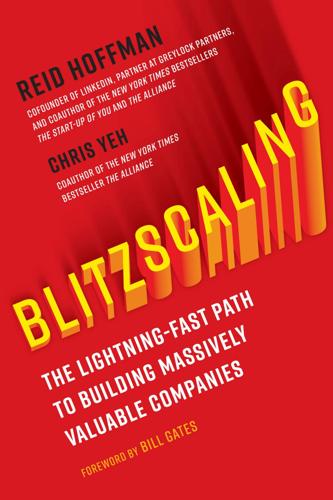
Blitzscaling: The Lightning-Fast Path to Building Massively Valuable Companies
by
Reid Hoffman
and
Chris Yeh
Published 14 Apr 2018
This flexibility allows these teams to be extremely adaptable and to change directions quickly as the company learns new information and has to adjust its strategy and tactics. During the Family and Tribe stages of PayPal, having a small, nimble team allowed us to execute four hard pivots during the first year of the company’s existence. When Peter Thiel, Max Levchin, and Luke Nosek founded PayPal (then known as Confinity) in December 1998, Confinity was intended to be a mobile phone encryption company using Max’s highly efficient encryption technology. From there, the company pivoted first to mobile phone cash (pivot #1) and then to PalmPilot payments via infrared beaming (pivot #2).
…
If you asked another employee, would he give the same answers? When organizations have strong cultures, their employees give consistent answers and act accordingly. A strong commitment to a culture will sometimes mean passing on hiring “A players” who don’t fit that culture. At PayPal, for example, Max Levchin instituted a problem-solving test as part of the hiring process for joining our engineering group. He wanted a culture that was focused on solving big-picture problems, not simply writing good code. If a person was a great programmer but didn’t have a problem-solving orientation, we didn’t hire him or her.
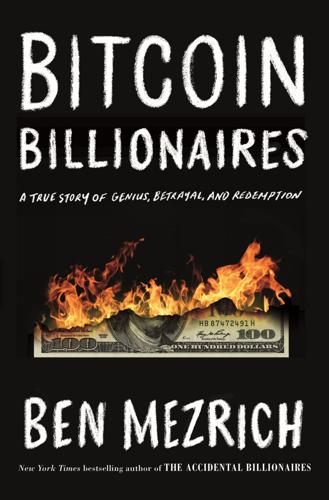
Bitcoin Billionaires: A True Story of Genius, Betrayal, and Redemption
by
Ben Mezrich
Published 20 May 2019
Thiel himself was, of course, a Valley legend, having founded PayPal, and was considered the “don” of the “PayPal Mafia”—a group of PayPal alums who’d gone on to start a slew of world-changing companies. The group included Elon Musk (Tesla, SpaceX), Reid Hoffman (LinkedIn), David Sacks (Yammer), Ken Howery (Founders Fund), Max Levchin (Yelp), and others. Thiel also happened to have been the first investor in Facebook; he turned a $500,000 check into a billion-dollar investment, a mind-blowing 13,000x return. At the dinner, Naval had told the twins about the company he had cofounded in 2010, called AngelList, a meeting place for investors and entrepreneurs—something Business Insider had once called “Match.com for investors.”
…
They were intensely interested in cryptography, protocols, and peer-to-peer networking, and coding in lower-level languages like C and C++. They were close to the bare metal, the 1s and 0s, bits and bytes, not the more user-friendly, abstracted layers. Tyler certainly recognized brilliant billionaires among them, such as Max Levchin, who had cofounded PayPal with Thiel. Levchin was credited with decimating fraud on the network in the early days, and was a leading member of the PayPal Mafia. Tyler also saw true protocol royalty in the form of Bram Cohen, who had built BitTorrent and essentially invented decentralized, peer-to-peer file sharing.
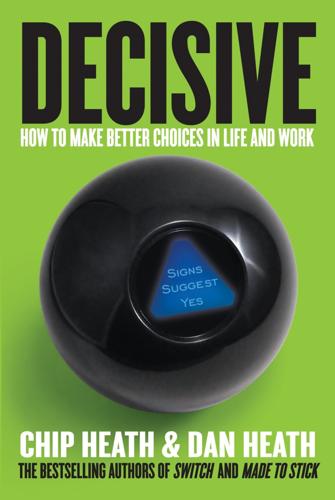
Decisive: How to Make Better Choices in Life and Work
by
Chip Heath
and
Dan Heath
Published 26 Mar 2013
As a stereotype, imagine a middle manager at your state’s DMV mumbling, “We’ve always done it this way.” But the status-quo bias is far more prevalent than that. PayPal is one of the most successful (and least DMV-like) companies of the Internet era, yet even its young, innovative founders almost fell prey to the status-quo bias. In 1998, at age 23, a recent college graduate named Max Levchin cofounded PayPal. At that time, the company had nothing to do with online payments. Rather, it made security software for handheld devices. In college, Levchin had grown fascinated with software and cryptography, and purely as a hobby, he had created some security software for PalmPilots, making it available for free download.
…
Cutler and Richard Zeckhauser (2004), “Extending the Theory to Meet the Practice of Insurance,” Working paper, Harvard University. Coffee-mug study: Daniel Kahneman, Jack L. Knetsch, and Richard Thaler (1990), “Experimental Tests of the Endowment Effect and the Coase Theorem,” Journal of Political Economy 98: 1325–48. 6 Max Levchin cofounded PayPal. PayPal was actually first called Confinity, and it produced a product called PayPal, but it was later renamed PayPal after a merger. To keep it simple, we just call it PayPal. This case study is from a fun book by Jessica Livingston where she interviews the founders of almost three dozen start-ups, including Craigslist, Adobe, Hotmail, and others.
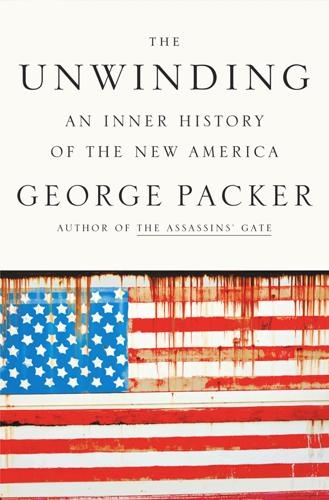
The Unwinding: An Inner History of the New America
by
George Packer
Published 4 Mar 2014
Unlike New York, Silicon Valley wasn’t a zero-sum game. It took two more years. In the summer of 1998, Thiel gave a guest lecture at Stanford on currency trading. It was a hot day and around six people showed up. One of them was a twenty-three-year-old Ukrainian-born computer programmer named Max Levchin. Just out of the University of Illinois, he had come to Silicon Valley that summer with a vague notion of starting a company, sleeping on friends’ floors—on the day of the lecture he was looking for an air-conditioned room to cool off in. As Levchin listened, he grew excited. Thiel was young, smart, he dressed in a T-shirt and jeans, he was more than a step ahead of the game, what he was saying sounded more like chess than investing.
…
Thiel was trying to build a successful business that would make him rich, but he also wanted to disrupt the world—in particular, the ancient technology of paper money and the oppressive system of monetary policy. The ultimate goal was to create an alternate currency online that would circumvent government controls—a libertarian goal. The summer he met Max Levchin, Thiel read a book published the previous year, The Sovereign Individual by Lord William Rees-Mogg and James Dale Davidson. It described a coming world in which the computer revolution would erode the authority of nation-states, the loyalty of their citizens, and the hierarchies of traditional professions, empower individuals through globalized cybercommerce, decentralize finance by moving it online with electronic money, and bury welfare-state democracies, while accelerating inequalities of wealth (which, in the madcap late nineties, seemed almost inconceivable).
…
Jackson, The PayPal Wars: Battles with eBay, the Media, the Mafia and the Rest of Planet Earth (Los Angeles: World Ahead Publishing, 2010). David Kirkpatrick, The Facebook Effect: The Inside Story of the Company That Is Connecting the World (New York: Simon & Schuster, 2011). Jessica Livingston, “Max Levchin,” in Founders at Work: Stories of Startups’ Early Days (New York: Apress, 2008). Ben Mezrich, The Accidental Billionaires: The Founding of Facebook (New York: Anchor, 2010). David O. Sacks and Peter A. Thiel, The Diversity Myth: Multiculturalism and Political Intolerance on Campus (Oakland, CA: The Independent Institute, 1998).
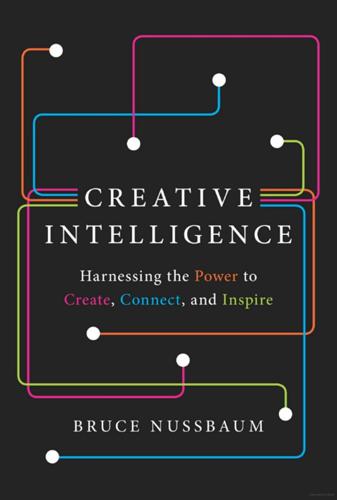
Creative Intelligence: Harnessing the Power to Create, Connect, and Inspire
by
Bruce Nussbaum
Published 5 Mar 2013
. $44.2 Billion,” Safe Haven, October 17, 2012, accessed October 20, 2012, http://www.safehaven.com/article/27361/ us-august-net-trade-deficit-reported-at-us442-billion. 235 Even in high tech: Michael Mandel, “Innovation Failure,” Mandel on Innovation and Growth, October 5, 2010, accessed October 21, 2012, http://innovationandgrowth.wordpress.com/2010/10/05/ innovation-failure/; Michael Mandel, discussions with the author, 2012. 235 A National Science Foundation report: Mark Boroush, “NSF Releases New Statistics on Business Innovation,” October 2010, accessed October 12, 2012, http://www.nsf.gov/statistics/ infbrief/nsf11300/. 235 At an Aspen Institute: TPI Aspen Forum, August 21 to 23, 2011, https://techpolicyinstitute.org/aspen2011/. 235 Peter Thiel, a cofounder: Rip Empson, “Max Levchin and Peter Thiel: Innovation in the World Today Is Between ’Dire Straits and Dead,’” TechCrunch, September 12, 2011, http://techcrunch.com/2011/09/12/ max-levchin-and-peter-thiel-innovation-in-the-world-today-is-between-dire-straits-and-dead/. 235 and we haven’t seen any new breakthroughs in energy: Ken Bossong, “Renewable Energy Provided 11% of Domestic Energy Production in 2010,” Renewable Energy World, accessed September 15, 2012, http://www.renewableenergyworld.com/rea/news/ article/2011/04/ renewable-energy-provided-11-of-domestic-energy-production-in-2010. 235 We have all been feeling the ripple: Michael Mandel, “Why Isn’t the Innovation Economy Creating More Jobs?”
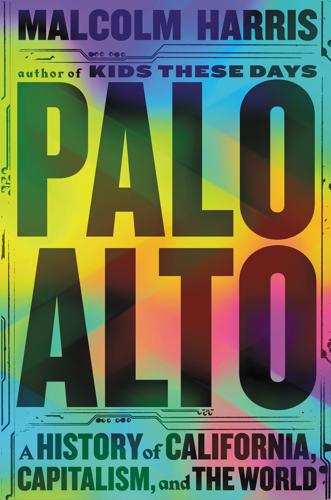
Palo Alto: A History of California, Capitalism, and the World
by
Malcolm Harris
Published 14 Feb 2023
It was an exciting time to be a money guy with connections in Palo Alto, and the twenty-nine-year-old persuaded friends and family to give him $1 million to create the simply descriptive Thiel Capital Management. Like Jim Clark, Thiel invested in young graduates from the University of Illinois, products of the government’s campus supercomputer center. One of those U of I kids was a twenty-three-year-old named Max Levchin, who in 1998 was hanging around Stanford with a couple of ideas. Handheld computers were just reemerging as a viable technology, and the potential of PalmPilots enraptured the Valley’s nerds. Levchin’s start-up Fieldlink (later Confinity) began, by the fast-acting grace of Thiel Capital Management, as a mobile encryption software firm for business that allowed workers to communicate securely from the field.
…
PayPal’s millionaires spun off a series of start-ups that rivaled the Fairchildren in economic significance if not technical achievement: Steve Chen, Chad Hurley, and Jawed Karim sold YouTube to Google in 2006 for $1.65 billion; Russel Simmons and Jeremy Stoppelman almost sold Yelp to Yahoo! for $1 billion but ended up going public instead. David Sacks sold his Yammer to Microsoft in 2012 for $1.2 billion. Microsoft also bought LinkedIn, helmed by Thiel’s liberal Stanford foil, Reid Hoffman, for $26.2 billion in 2016. Max Levchin’s online lending platform, Affirm, went public in 2021 at a market cap in the tens of billions of dollars. Musk used his cash to found a rocket company called SpaceX and purchase majority control of an electric car company called Tesla. Thiel started a hedge fund named Clarium Capital and he invested in his buddies as well as other projects when he got tipped off.
…
from the developer point of view was that it pulled new people—the poked, the slapped, and so on—in, and Facebook news feeds flooded with spammy independent app notifications. Every time users opened Facebook, they were three quick clicks away from giving their information to a third-party app developer. The biggest social app company was called Slide, and it acquired SuperPoke! among other popular widgets. Founded by PayPal’s Max Levchin and seed-financed by Peter Thiel, Slide used information gleaned via Facebook app permissions to help target advertisements. In January of 2008, Slide raised $50 million from institutional investors Fidelity and T. Rowe Price at a half-billion-dollar valuation, a move that surprised the financial press, since Slide just bought stupid Facebook games.52 Commentators weren’t wrong to imagine that the company was overvalued: As Facebook signaled it was getting fed up with low-quality developers and worked toward an institutionalized kickback agreement with leading game maker Zynga, Levchin sold Slide to Google for $179 million.53 It shuttered soon after.
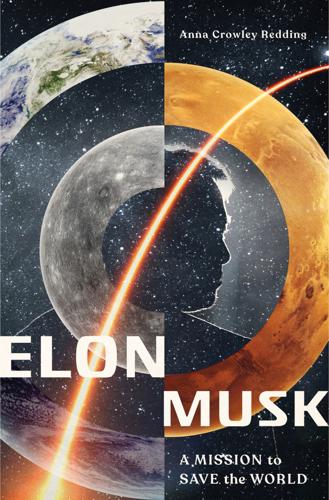
Elon Musk: A Mission to Save the World
by
Anna Crowley Redding
Published 1 Jul 2019
“I was a really lonely kid and he was a really lonely kid and that’s one of the things that attracted me to him. I thought he had this understanding of loneliness—how to create yourself in that.”59 Back at work, the intensity stepped up to a whole new level. Two other Silicon Valley entrepreneurs, Peter Thiel and Max Levchin, had been working on a similar concept at a different company called Confinity. The two companies became fierce competitors. But that spring, in March 2000, they agreed to join forces, and the companies merged. SPOTLIGHT: Jeremy Stoppelman was an X.com engineer. He would go on to become the CEO of review site Yelp.
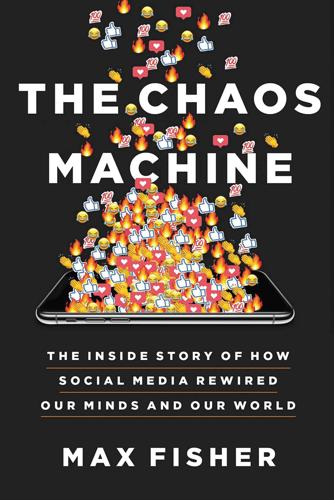
The Chaos Machine: The Inside Story of How Social Media Rewired Our Minds and Our World
by
Max Fisher
Published 5 Sep 2022
Thiel, further parlaying his PayPal success, started a fund that launched major investments in Airbnb, Lyft, and Spotify. Throughout, like many leading investors, he imposed his ideals on the companies he oversaw. In the 1990s, he co-authored a book, The Diversity Myth, calling the purposeful inclusion of women or minorities a scam that stifled free intellectual pursuit. “Max Levchin, my co-founder at PayPal, says that startups should make their early staff as personally similar as possible,” Thiel wrote. “Everyone at your company should be different in the same way—a tribe of like-minded people fiercely devoted to the company’s mission.” This, more than race or gender alone, was the rigid archetype around which the Valley designed its products: ruthless, logical, misanthropic, white, male geeks.
…
Initially circulated to dozens of websites simultaneously, now available at Eff.org/cyberspace-independence. 19 “Our general counsel and CEO”: “Twitter’s Tony Wang: ‘We Are the Free Speech Wing of the Free Speech Party,’” Josh Halliday, The Guardian, March 22, 2012. 20 “the founding ideal”: Levy, Facebook: The Inside Story: 458. 21 While Apple was: This is according to Dave Morin, a former senior engineer at Facebook, as paraphrased in Levy: 149. 22 “We’re kind of fundamentally”: “The Facebook Dilemma,” PBS Frontline, October 29, 2018. 23 a letter to shareholders: “Zuckerberg’s Letter to Investors,” Reuters, February 1, 2012. 24 “There’s this fundamental”: Levy, 7. 25 “The reason we nerds”: Hackers and Painters, Paul Graham, 2004: 9. 26 has said he looks for: “What We Look for in Founders,” Paul Graham, Paulgraham.com, October 2010. 27 “These guys want to”: “What I Did This Summer,” Paul Graham, Paulgraham.com, October 2005. 28 “If you’re less sensitive”: Zero to One: Notes on Startups, or How to Build the Future, Peter Thiel and Blake Masters, 2014: 40. 29 “Max Levchin, my co-founder”: Ibid: 122. 30 A pair of videos: Screenshots documenting the incident can be found at “Kenny Glenn Case / Dusty the Cat,” Knowyourmeme.com, September 10, 2011. 31 made it wildly popular: “Media Manipulation and Disinformation Online,” Alice Marwick and Rebecca Lewis, Data & Society, May 2017. 32 “Ultimately,” Christopher Poole: “The Trolls Among Us,” Mattathias Schwartz, New York Times Magazine, August 3, 2008. 33 Adolescents also have: Behave: The Biology of Humans at Our Best and Worst, Robert M.
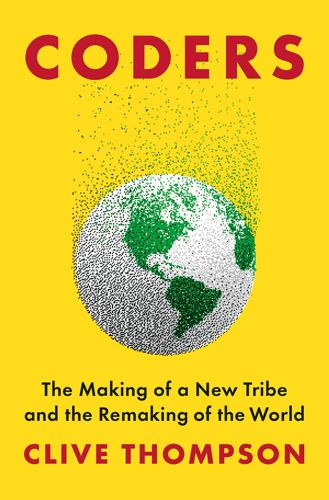
Coders: The Making of a New Tribe and the Remaking of the World
by
Clive Thompson
Published 26 Mar 2019
As he told the Guardian, he blocked sites like Reddit, stopped using Snapchat, and even set up parental controls to keep himself from downloading new apps on his phone. His assistant has the password. It turns out there’s some use, after all, in techniques for slowing things down. < Chapter 6 > 10X, Rock Stars, and the Myth of Meritocracy In the annals of coding, Max Levchin is considered something of a colossus. Levchin is the programmer who almost single-handedly willed PayPal into existence, in a frenzy of programming. He’d grown up in the Ukraine in the Soviet ’80s, where he first discovered the fun of mucking around with programmable computers. When his family fled the region—they were Jewish, a persecuted minority—they arrived in Chicago in 1991.
…
as Rosenstein told The Verge: Casey Newton, “The Person Behind the Like Button Says Software Is Wasting Our Time,” The Verge, March 28, 2018, https://www.theverge.com/2018/3/28/17172404/justin-rosenstein-asana-social-media-facebook-timeline-gantt. 2,617 times a day: Paul Lewis, “ ‘Our Minds Can Be Hijacked’: The Tech Insiders Who Fear a Smartphone Dystopia,” Guardian, October 6, 2017, accessed August 18, 2018, https://www.theguardian.com/technology/2017/oct/05/smartphone-addiction-silicon-valley-dystopia. CHAPTER 6: 10X, ROCK STARS, AND THE MYTH OF MERITOCRACY a frenzy of programming: This section on Max Levchin draws from several sources, including Adam Penenberg, Viral Loop: From Facebook to Twitter: How Today’s Smartest Businesses Grow Themselves (New York: Hyperion, 2009), 158–275, Kindle; Sarah Lacy, Once You’re Lucky, Twice You’re Good: The Rebirth of Silicon Valley and the Rise of Web 2.0 (New York: Penguin, 2008), 17–41, Kindle; Jessica Livingston, Founders at Work: Stories of Startups’ Early Days (New York: Apress, 2008), locations 200–605 of 12266, Kindle; Krissy Clark, “What Does Meritocracy Really Mean in Silicon Valley?
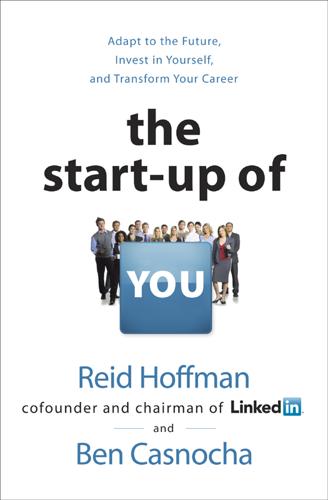
The Start-Up of You: Adapt to the Future, Invest in Yourself, and Transform Your Career
by
Reid Hoffman
and
Ben Casnocha
Published 14 Feb 2012
When PayPal went public in 2002 (one of only two companies to do so that year), it gave hope to a technology industry in recession. When eBay acquired the company for $1.5 billion, PayPal staked its claim as a great Silicon Valley success story. Yet the PayPal Plan A did not look anything like the company looks today. In 1998 programmer Max Levchin teamed with derivatives trader Peter Thiel to create a “digital wallet”—an encryption platform that allowed you to store cash and information securely on your mobile phone. That soon evolved to software that allowed you to send and receive digital cash wirelessly and securely via a Palm Pilot (the first of several iterations) so that two friends could split a dinner tab using their PDAs.
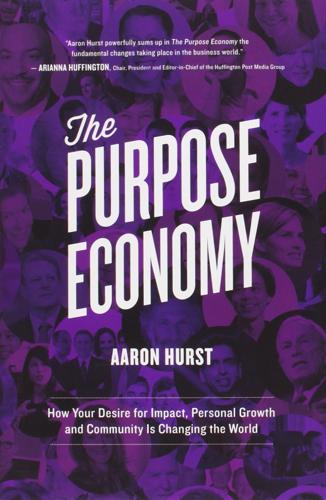
The Purpose Economy: How Your Desire for Impact, Personal Growth and Community Is Changing the World
by
Aaron Hurst
Published 31 Aug 2013
And as the dot-com sector regained its footing after the crash, we saw whole industries transformed, as well as the way most Americans communicated and engaged in society. So many of the pioneers in social entrepreneurship, social media, and sustainability are from Generation X and were in some way engaged with the dot-com boom. Jimmy Wales and Larry Sanger of Wikipedia, Max Levchin, Elon Musk and Peter Thiel of PayPal, and Chris Anderson of Wired and now 3DRobotics are just a few examples. The core leadership of the Purpose Economy today is from this often forgotten generation, who in many ways produced the architects and catalysts of the new economy. 4. Environmental, Economic & Political Turmoil The growing uncertainty in our society is moving people to find stability within themselves, and to identify the need, to develop empathy for those affected by turmoil.
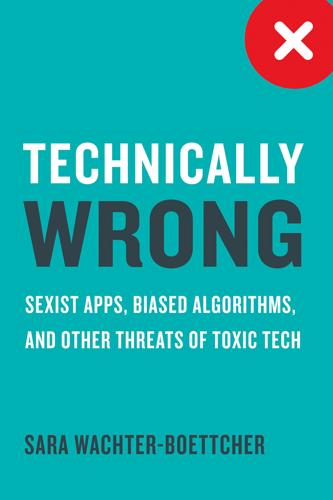
Technically Wrong: Sexist Apps, Biased Algorithms, and Other Threats of Toxic Tech
by
Sara Wachter-Boettcher
Published 9 Oct 2017
“We live in a time when people are tracking everything about their bodies . . . yet it’s still uncomfortable to talk about your reproductive health, whether you’re trying to get pregnant or just wondering how ‘normal’ your period is,” the company website stated. “We believe this needs to change.” 4 And the people who thought they were the ones to change it? Glow’s founding team: Max Levchin, Kevin Ho, Chris Martinez, and Ryan Ye. All men, of course—men who apparently never considered the range of real people who want to know whether their period is “normal.” Eve by Glow, a newer app designed by the makers of Glow for young women. Except it, too, makes assumptions about what its audience cares about.
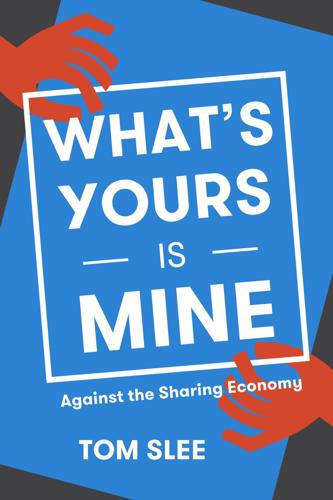
What's Yours Is Mine: Against the Sharing Economy
by
Tom Slee
Published 18 Nov 2015
HOMEJOY House cleaning is not an obvious industry for Google to expand into, but in 2013 the company’s venture capital wing, Google Ventures, joined other investors in putting $38 million into a small company called Homejoy, run by sister and brother Adora and Aaron Cheung. Joining Google Ventures in the early investment round was Max Levchin, co-founder (along with Peter Thiel) of PayPal, and Andreessen Horowitz. Homejoy’s web site says “Get your place cleaned,” but the terms of service (over 4,000 words) emphasize that “THE COMPANY DOES NOT PROVIDE CLEANING SERVICES, AND THE COMPANY IS NOT A CLEANING SERVICE PROVIDER” and “The Service is a communications platform for enabling the connection between individuals seeking to obtain cleaning services and/or individuals seeking to provide cleaning services.”
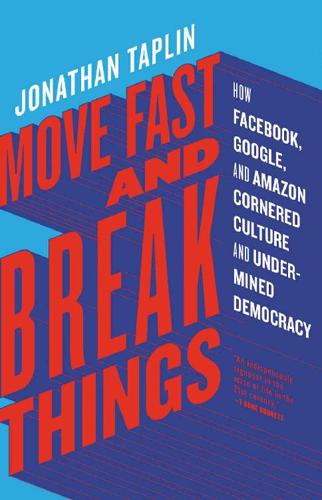
Move Fast and Break Things: How Facebook, Google, and Amazon Cornered Culture and Undermined Democracy
by
Jonathan Taplin
Published 17 Apr 2017
Clearly he saw himself as the person to lead this crusade. He would create a business sector free from taxes, regulation, and copyright that would take the foundation laid down by Doug Engelbart, Stewart Brand, and Tim Berners-Lee in a whole new direction. 4. The first “machinery of freedom” Thiel, Max Levchin, and Luke Noseck designed was PayPal. In his book Zero to One: Notes on Startups, or How to Build the Future, Thiel notes proudly, “Of the six people who started PayPal, four had built bombs in high school.” Originally called Confinity, the company was started in December of 1998 as a payment system for the Palm Pilot handheld computer.
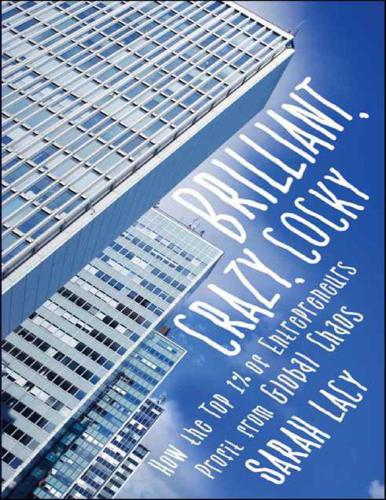
Brilliant, Crazy, Cocky: How the Top 1% of Entrepreneurs Profit From Global Chaos
by
Sarah Lacy
Published 6 Jan 2011
Within the United States, a pilgrimage started to take place from the Midwest, the South, and even the former center of innovation and finance— the Northeast. Global y, it was more pronounced than ever. In the 1980s and 1990s, more than 50 percent of Silicon Val ey startups had one or more immigrants as a key founder, according to Duke University researcher Vivek Wadhwa. For immigrants like Andy Grove of Intel, Vinod Khosla of Sun Microsystems, Max Levchin of PayPal, and Sergey Brin of Google, Silicon Val ey was the epicenter of the American dream. The Internet took the sleepy town and stealthy industry of Silicon Val ey and turbocharged it, displaying it to the world. The Val ey had long had a core of enthusiasm, hubris, creativity, and greed, but now it was everywhere you turned, from north of the Golden Gate Bridge to the ho-hum depths of the East Bay to the once-sleepy orchards of the South Bay, and even down to the hippy beaches of Santa Cruz.
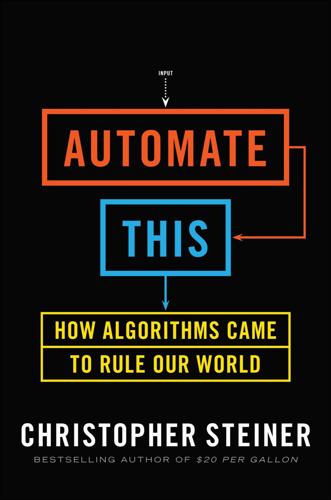
Automate This: How Algorithms Came to Rule Our World
by
Christopher Steiner
Published 29 Aug 2012
But then came AOL, Netscape, eBay, and Yahoo! A new class of millionaire was born and computer science schools’ enrollments jumped again. When I was an engineering student at the University of Illinois in the late 1990s, the school was riding a wave of alumni successes, including those of Marc Andreessen (Netscape), Max Levchin (PayPal), and later the founders of YouTube and Yelp! The computer science building at U of I was the busiest place on the engineering quad. Students regularly departed for Silicon Valley before they graduated, and stories of dot-com gold kept the quad buzzing. Even mediocre students seemed to be snaring signing bonuses, stock options, and some fuzzy guarantee of Web glory upon graduation.
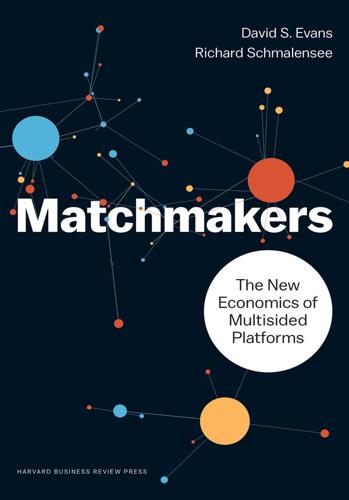
Matchmakers: The New Economics of Multisided Platforms
by
David S. Evans
and
Richard Schmalensee
Published 23 May 2016
“Make ’em believe,” known more formally as shaping expectations, is perhaps the most common tactic used by multisided platform entrepreneurs. This sales job involves convincing members of each group that if they join the platform, members of the other group will be there too. If it works, this tactic builds valuable momentum. Sometimes the vision, or the record of the entrepreneur, is enough. Max Levchin, one of the founders of PayPal and a highly respected innovator and entrepreneur, launched a novel and new consumer online transactional lending platform in February 2013, Affirm. He needed partners in the financial services sector to give him access to capital to lend to those consumers and merchants who would agree to accept Affirm as a method of payment.
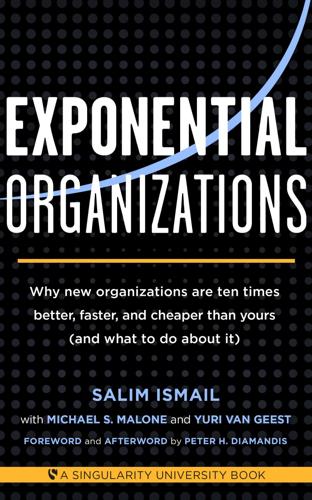
Exponential Organizations: Why New Organizations Are Ten Times Better, Faster, and Cheaper Than Yours (And What to Do About It)
by
Salim Ismail
and
Yuri van Geest
Published 17 Oct 2014
Whatever the approach, however, founders must be intrinsically motivated self-starters. Most of all, in the face of rapid growth and change, they must have complete trust in one another’s judgment. Think about the PayPal story. Peter Thiel told his co-founders (Elon Musk, Reid Hoffman, Luke Nosek, Max Levchin and Chad Hurley) and employees that they all should work together as friends rather than more formally as employees. Looking back, perhaps friendship was PayPal’s MTP. Not only was PayPal very successful as a company—it was sold to eBay for $1.2 billion—but the friendships that grew out of it were equally successful.
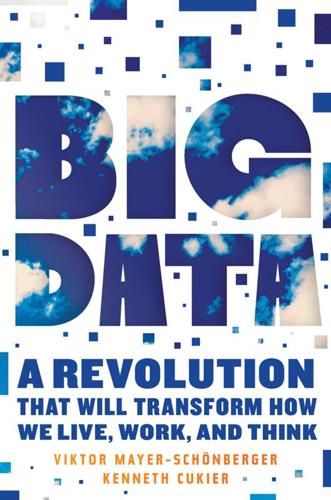
Big Data: A Revolution That Will Transform How We Live, Work, and Think
by
Viktor Mayer-Schonberger
and
Kenneth Cukier
Published 5 Mar 2013
Today’s pioneers of big data often come from disparate backgrounds and cross-apply their data skills in a wide variety of areas. A new generation of angel investors and entrepreneurs is emerging, notably from among ex-Googlers and the so-called PayPal Mafia (the firm’s former leaders like Peter Thiel, Reid Hoffman, and Max Levchin). They, along with a handful of academic computer scientists, are some of the biggest backers of today’s data-infused startups. The creative vision of individuals and firms in the big data food-chain helps us reassess the worth of companies. For instance, Salesforce.com may not simply be a useful platform for firms to host their corporate applications: it is also well placed to unleash value from the data that flows atop its infrastructure.
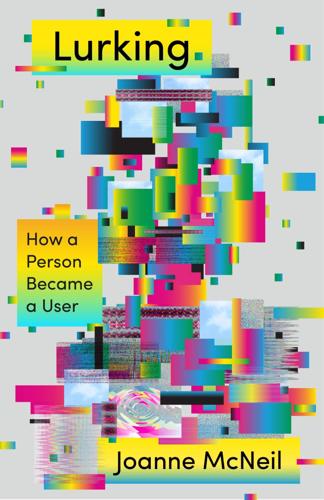
Lurking: How a Person Became a User
by
Joanne McNeil
Published 25 Feb 2020
Many are loath to admit it now, but the “Hot or Not” web page for ranking attractiveness is at least as much of an influence in Silicon Valley as The Whole Earth Catalog or the Homebrew Computer Club. Mark Zuckerberg’s creation started as “Facemash,” in which he compiled all the photos of students in Harvard dorms and built a website for users to rank which of two people presented at random was “hotter.” Max Levchin, of Yelp and PayPal, created something similar in 2005 that he called a “babe ticker,” before rebranding the product as the general photo-sharing widget Slide. Then again, Jared Kushner once ordered The New York Observer to create a ranking website called “Socialite Slapdown,” after he bought the newspaper at the age of twenty-five, so perhaps this is the inclination of status-obsessed youth, rather than fodder for the debate over old media versus new.
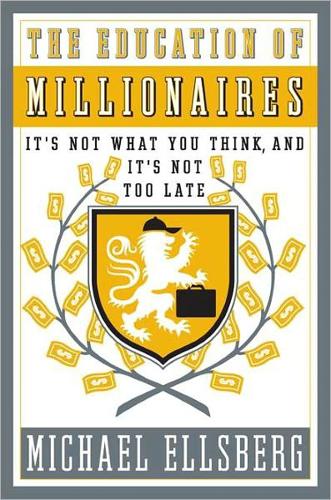
The Education of Millionaires: It's Not What You Think and It's Not Too Late
by
Michael Ellsberg
Published 15 Jan 2011
Scott was studying at the University of Illinois at Urbana-Champaign in the late nineties, with the intention of becoming a professor of computer science. On the side of his studies, he began teaching himself HTML (hypertext markup language). He soon applied for and got a job as a webmaster, and then started various Web companies, including a banner ad company with college buddy Max Levchin (who later went on to cofound PayPal). “We tell kids school is important, and most kids, including myself, believe that, and keep going further and further into formal education, with the attitude that ‘this is what’s important in the world.’ “Well, the problem with that is that that’s just a cliff that just ends at some point.
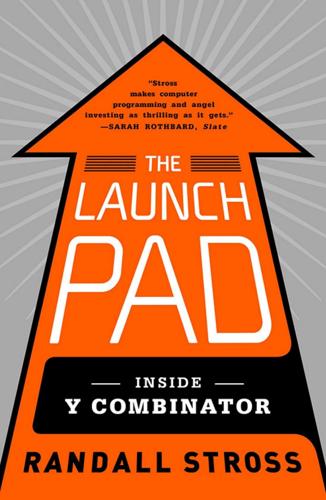
The Launch Pad: Inside Y Combinator, Silicon Valley's Most Exclusive School for Startups
by
Randall Stross
Published 4 Sep 2013
The two young founders managed by August 2006 to raise an impressive £160,000 (about $300,000). They knew that capital was a necessary, but not sufficient, condition for making a go of Boso. They needed different surroundings, a place where experienced founders who could provide guidance were plentiful. Kulveer flew to San Francisco to talk with Evan Williams; he also met Max Levchin, a cofounder of PayPal, and Naval Ravikant, a serial founder. When he returned home, he told Harj that the conversations he had had with those people were incomparably more useful than those with people in London. That spurred the two to think about relocation to Silicon Valley. One day, on a whim, Harj did a Google search for “mistakes startups make.”
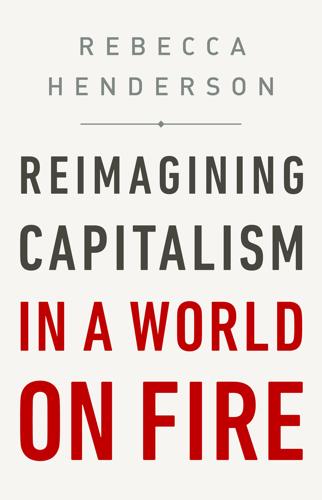
Reimagining Capitalism in a World on Fire
by
Rebecca Henderson
Published 27 Apr 2020
The day after the bill passed, a number of companies—including American Airlines, Red Hat, Facebook, Apple, and Google—issued statements opposing HB2. A few days later more than one hundred other CEOs and business leaders signed a letter expressing their concerns about the bill. The cofounder of PayPal, Max Levchin, who the previous year had told CNN that opposing the Indiana law was “a basic human decency issue,” canceled plans to open a new operations center in Charlotte, the largest city in North Carolina and the source of the original ordinance, costing the state as many as four hundred new jobs. A week later Deutsche Bank announced that it was canceling its plans to create 250 jobs in Cary, North Carolina.
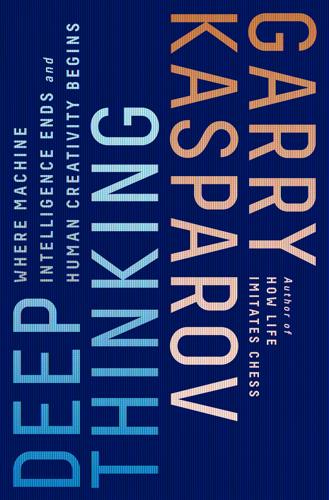
Deep Thinking: Where Machine Intelligence Ends and Human Creativity Begins
by
Garry Kasparov
Published 1 May 2017
Not every great singer writes her own songs, however, and Apple’s shareholders and consumers clearly believe that their design and brand add a lot of value to their products. But if everyone imitates, soon there will be nothing new to imitate. Demand can be stimulated by incremental product diversification for only so long. The entrepreneur and venture capitalist Max Levchin used a good expression for this effect referring to Silicon Valley and tech start-ups, and I like it for just about everything. While we were working on a book project together a few years ago, he called it “innovating at the margins.” That is, looking for small efficiencies instead of taking on more substantial risks in the main area of business.
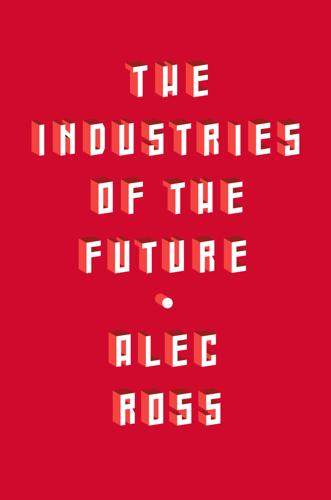
The Industries of the Future
by
Alec Ross
Published 2 Feb 2016
Enable Talk, a project described in chapter 1 that uses special gloves to translate sign language into speech, was created by four Ukrainian student developers. Enable Talk took home the first prize at the Microsoft Imagine Cup competition in 2012, and Time magazine named it one of the best inventions of the year. PayPal cofounder and serial entrepreneur Max Levchin also comes from a family that fled Kiev to seek political asylum in the United States. Science and technology companies in Silicon Valley, London, and Berlin are teeming with Ukrainian engineers. Ukraine’s black hat hackers-for-hire are some of the best in the world. At the very moment Koum and Mark Zuckerberg were finalizing their deal, female entrepreneurs in Ukraine were preparing for an event called Startup Weekend Kyiv.
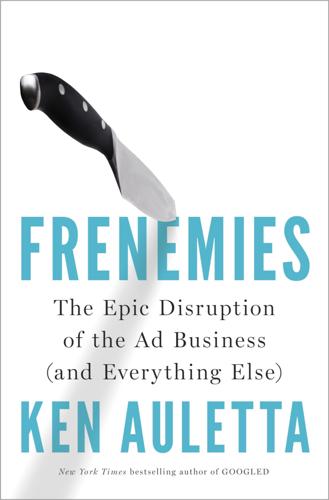
Frenemies: The Epic Disruption of the Ad Business
by
Ken Auletta
Published 4 Jun 2018
One of the challenges with travel, a member of his team interjects, is that people don’t want to cart heavy luggage. They can pack lighter by shipping their clothes ahead. We have to think of the customer and what they can afford, Vaynerchuk said. “Are you guys familiar with a start-up called Affirm? It’s a financial company that makes consumer credit more accessible. It was started by Max Levchin, a cofounder of PayPal.” And, he adds, if you go online to the Casper mattress company to buy a mattress, “when you go to the shopping cart and put the credit card in you’ll see the confirm button. You know what this is? It’s making three equal payments. It’s allowing you not to pay at once.” What would be “amazing,” he says, is if Vayner could lock up customers for their credit card client by signing exclusive deals with retail companies to use a button on their Web site for the Sapphire Reserve credit card.
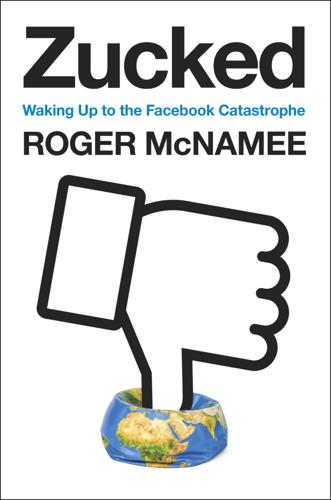
Zucked: Waking Up to the Facebook Catastrophe
by
Roger McNamee
Published 1 Jan 2019
Into the void stepped angel investors—individuals, mostly former entrepreneurs and executives—who guided startups during their earliest stages. Angel investors were perfectly matched to the lean startup model, gaining leverage from relatively small investments. One angel, Ron Conway, built a huge brand, but the team that had started PayPal proved to have much greater impact. Peter Thiel, Elon Musk, Reid Hoffman, Max Levchin, Jeremy Stoppleman, and their colleagues were collectively known as the PayPal Mafia, and their impact transformed Silicon Valley. Not only did they launch Tesla, Space-X, LinkedIn, and Yelp, they provided early funding to Facebook and many other successful players. More important than the money, though, were the vision, value system, and connections of the PayPal Mafia, which came to dominate the social media generation.
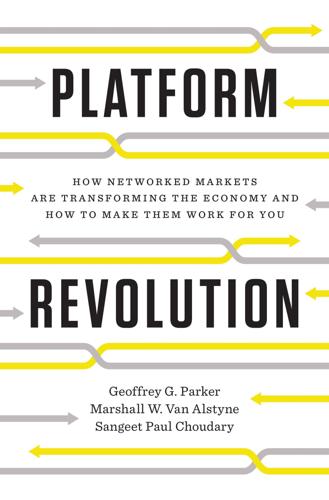
Platform Revolution: How Networked Markets Are Transforming the Economy--And How to Make Them Work for You
by
Sangeet Paul Choudary
,
Marshall W. van Alstyne
and
Geoffrey G. Parker
Published 27 Mar 2016
Thirty-one-year-old Peter Thiel was born in Germany and raised in California, where he became one of the country’s highest-ranked young chess players and went on to study philosophy and law at Stanford University. An avowed libertarian, Thiel helped found the Stanford Review, a conservative newspaper that challenged the university’s dominant liberal culture. Max Levchin, twenty-three years old, was born in Ukraine and granted political asylum when he moved to the U.S. with his family. Levchin grew up in Chicago and studied computer science at the University of Illinois at Champaign–Urbana, where he developed a passion for cryptography—the science of making and breaking codes.
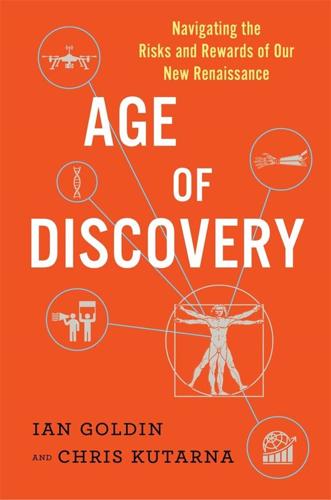
Age of Discovery: Navigating the Risks and Rewards of Our New Renaissance
by
Ian Goldin
and
Chris Kutarna
Published 23 May 2016
This is disappointing news for everyone: average US wages rose 350 percent in the forty years between 1932 and 1972, but rose only 22 percent over the next forty. In other words: for all its hype, the computer has had less impact on people’s incomes than the flush toilet.35 Missed expectations Even without numbers, our present-day stagnation is plain. Consider this argument from Garry Kasparov and Max Levchin. A person born in the US in 1875 had three choices if she wanted to get from A to B: walk, ride a horse or take a boat. She hauled her daily water and sewage; burned wood, coal and oil for light and heat; and performed most of her labors with either human or animal power. Assuming she didn’t die early (due to poor sanitation, life expectancy at the time was only 40 years), she lived long enough to witness a world in which people drove cars, flew through the sky, made water appear at the turn of a faucet (and flush away just as easily), commanded lights with the flick of a switch, and employed machines to do everything from wash their clothes to calculate their payroll.
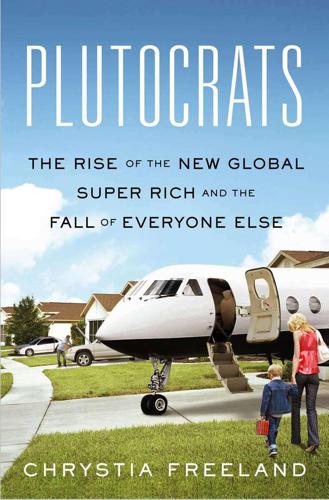
Plutocrats: The Rise of the New Global Super-Rich and the Fall of Everyone Else
by
Chrystia Freeland
Published 11 Oct 2012
By 1997, with just four years of technology experience under his belt, Hoffman, still running fast, decided to found his own company, Socialnet.com, an online dating site. Socialnet eventually closed down four years later without making much of a mark, but as Hoffman waded into the start-up world, two friends, Peter Thiel and Max Levchin, invited him to join the founding board of directors of their new company, PayPal. In January 2000, Hoffman went to work there full-time, a decision that made him a multimillionaire just two years later when eBay acquired the company. But the revolution still wasn’t over yet, and Hoffman wasn’t finished running.
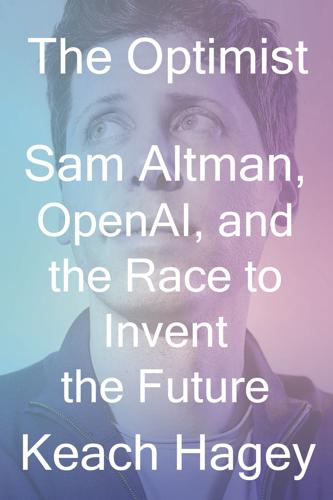
The Optimist: Sam Altman, OpenAI, and the Race to Invent the Future
by
Keach Hagey
Published 19 May 2025
Later on, after Altman recruited Helion Energy, which aimed to crack the code of making nuclear fusion practical, to join Y Combinator, Thiel put money in the company’s seed round through his firm Mithril Capital, alongside a personal stake from Altman.10 Besides a common interest in nuclear energy, Altman and Thiel had both ended up as seed investors in Stripe, at the recommendation of Paul Graham, who had thought Thiel’s background as a co-founder of a payments company, PayPal, would make him a helpful advisor to the young Patrick Collison. Ultimately, when Stripe was raising an $18 million Series A funding round—from Sequoia, Thiel, PayPal co-founder Max Levchin, and solo investor Elad Gil—it was Altman who played the role of indispensable advisor, talking Collison through the process over the course of dozens of phone calls, often as Collison biked across Palo Alto to the office and back each day. In the end, the round valued the young payments company at $100 million.
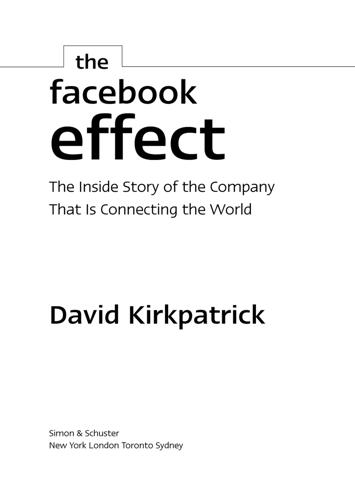
The Facebook Effect
by
David Kirkpatrick
Published 19 Nov 2010
In addition to some who prefer to remain unnamed, I interviewed Jonathan Abrams, Marko Ahtissari, Saeed Amidi, Marc Andreessen, Tim Armstrong, Samir Arora, Kevin Barenblat, Hank Barry, Tom Bedecarre, Gina Bianchini, Tricia Black, Rene Bonvanie, Jeremy Burton, Michele Clarke, Jared Cohen, Ron Conway, John Clippinger, Tom Crampton, Sebastian de Halleux, Soumitra Dutta, Nick Earle, Dani Essindi, Rahim Fazal, Lukasz Gadowski, Bill Gates, Seth Goldstein, Susan Gordon, Don Graham, Robert Hertzberg, Doug Hirsch, Reid Hoffman, Ken Howery, Joshua Iverson, Karl Jacob, Rebecca Jacoby, Bruce Jaffe, Josh James, Jeff Jarvis, Suzanne McGee, Mike Lazerow, Tara Lemmey, Sam Lessin, Max Levchin, Titus Levy, Charlene Li, Caroline Little, Chris Ma, Olivia Ma, Marissa Mayer, Oscar Morales, Yuri Milner, Rick Murray, Mairtini niDhomhnaill, Ray Ozzie, Philipp Pieper, Mark Pincus, Shervin Pishevar, Jeff Pulver, Scott Rafer, J. P. Rangaswami, Andrew Rasiej, Robin Reed, Gerry Rosberg, John Rosenthal, Marc Rotenberg, Geoff Sands, Marc Schiller, David Schlesinger, Clara Shih, Anu Shukla, Megan Smith, Justin Smith, Gary Spangler, Stan Stalnaker, Daniel Stauffacher, Seth Sternberg, Nick Summers, David Sze, Don Tapscott, Rodrigo Teijeiro, Owen Van Natta, Erik Wachtmeister, Duncan Watts, Bill Weaver, Andrew Weinreich, Maurice Werdegar, John Winsor, Michael Wolf, and Robert Wright.
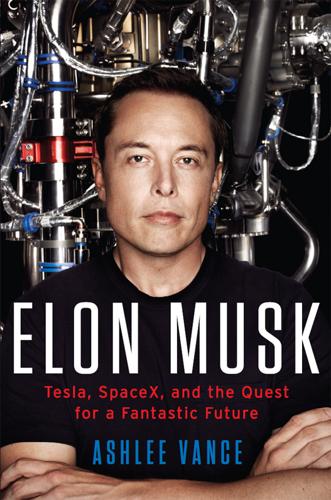
Elon Musk: Tesla, SpaceX, and the Quest for a Fantastic Future
by
Ashlee Vance
Published 18 May 2015
The whole idea was to shift away from slow-moving banks with their mainframes taking days to process payments and to create a kind of agile bank account where you could move money around with a couple of clicks on a mouse or an e-mail. This was revolutionary stuff, and more than 200,000 people bought into it and signed up for X.com within the first couple of months of operation. Soon enough, X.com had a major competitor. A couple of brainy kids named Max Levchin and Peter Thiel had been working on a payment system of their own at their start-up called Confinity. The duo actually rented their office space—a glorified broom closet—from X.com and were trying to make it possible for owners of Palm Pilot handhelds to swap money via the infrared ports on the devices.
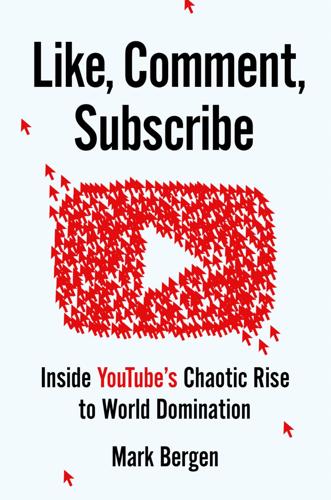
Like, Comment, Subscribe: Inside YouTube's Chaotic Rise to World Domination
by
Mark Bergen
Published 5 Sep 2022
He went on to study computer science at the University of Illinois but frequently skipped classes. Assignments asked for outcomes from code—a program or an algorithm optimized to perform a task. If this, then that. Chen could figure that out with just a book and a keyboard. And he already had a contact in the industry. One of Confinity’s founders, Max Levchin, a University of Illinois alum, liked to recruit from Chen’s high school; Levchin once told a reporter that the Illinois academy churned out “hard-core smart, hardworking, non-spoiled” coders, perfect for a start-up. Chen started at Confinity on a Sunday, walking into its office to find four other coders playing video games.
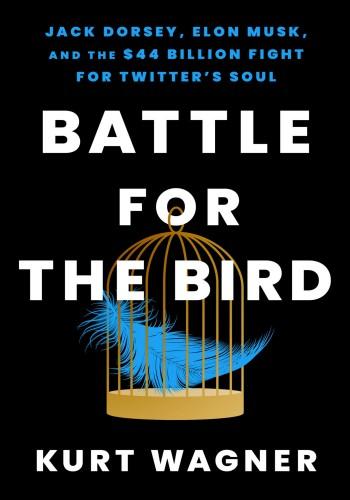
Battle for the Bird: Jack Dorsey, Elon Musk, and the $44 Billion Fight for Twitter's Soul
by
Kurt Wagner
Published 20 Feb 2024
Just as importantly, the Zip2 experience taught him a valuable lesson about corporate control—a similar lesson that Jack Dorsey would also learn the hard way years later at Twitter. Musk then took more than half of his $22 million and put it into his next business venture, X.com, an online bank that boasted a promotional gimmick that gave all new customers twenty dollars when they signed up for a checking account. Two other entrepreneurs, Peter Thiel and Max Levchin, rented office space from X.com in Palo Alto and were working on a competing company with a clever product that let people send money over email, called PayPal. Eventually, as the two businesses started to compete, they merged, and Musk became CEO and the largest shareholder of the new joint company.
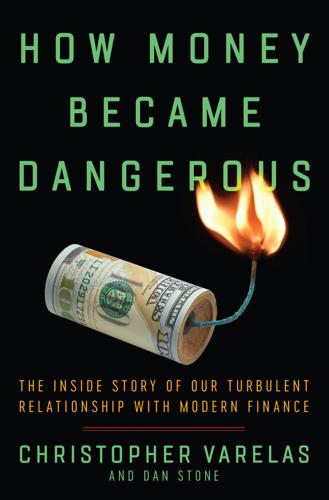
How Money Became Dangerous
by
Christopher Varelas
Published 15 Oct 2019
The individual bubbles that we live within play an integral role in the formation of large financial bubbles too, as we choose to ignore the rise of government debt, unfunded pension obligations, and student debt—just as we failed to see the mortgage bubble that blew up into the 2008 financial crisis. It’s rare to find someone in the upper stratospheres of wealth who vocally opposes the survivalist trend. Max Levchin, a PayPal founder, also talked with Osnos for the New Yorker piece: “It’s one of the few things about Silicon Valley that I actively dislike—the sense that we are superior giants who move the needle and, even if it’s our own failure, must be spared. . . . I typically ask people, ‘So you’re worried about the pitchforks.
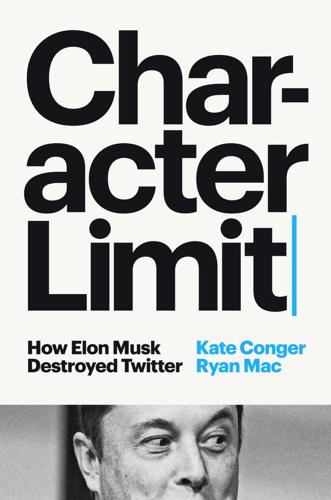
Character Limit: How Elon Musk Destroyed Twitter
by
Kate Conger
and
Ryan Mac
Published 17 Sep 2024
At twenty-eight, he was one of the few people in the nascent era of the consumer internet to have already sold a company. Why not hitch yourself to his star? But before X.com could take on the big credit card corporations, Musk found himself preoccupied with another competing start-up called Confinity. Its founders, Stanford University alums Peter Thiel, Max Levchin, and Luke Nosek, had developed a product called PayPal that allowed people online to email each other money. For a while, Confinity was located in the same Palo Alto building as X.com, leading some Confinity employees to believe that X had copied their product. The dot-com bubble burst in 2000, and by March of that year, both X.com and Confinity decided to merge under the X.com name.
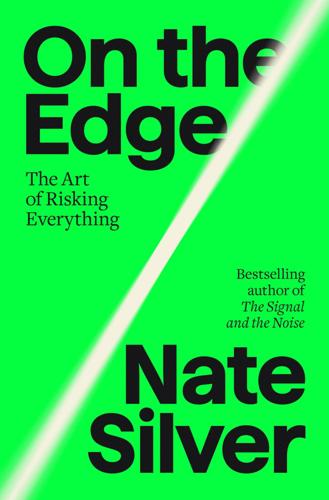
On the Edge: The Art of Risking Everything
by
Nate Silver
Published 12 Aug 2024
“All this mumbo-jumbo that ‘Oh, Silicon Valley is swashbuckling, buccaneering, and risk-taking and if you fail, that’s a notch on your belt and you get promoted for failure’—I think all that’s hogwash.” Founders, by contrast, are much more all-in—sometimes literally. When I read Walter Isaacson’s Elon Musk, I wasn’t surprised to learn about Elon’s kamikaze poker strategy: Many years later, [PayPal cofounder Max] Levchin was at a friend’s bachelor pad hanging out with Musk. Some people were playing a high-stakes game of Texas Hold ’Em. Although Musk was not a card player, he pulled up to the table. “There were all these nerds and sharpsters who were good at memorizing cards and calculating odds,” Levchin says.